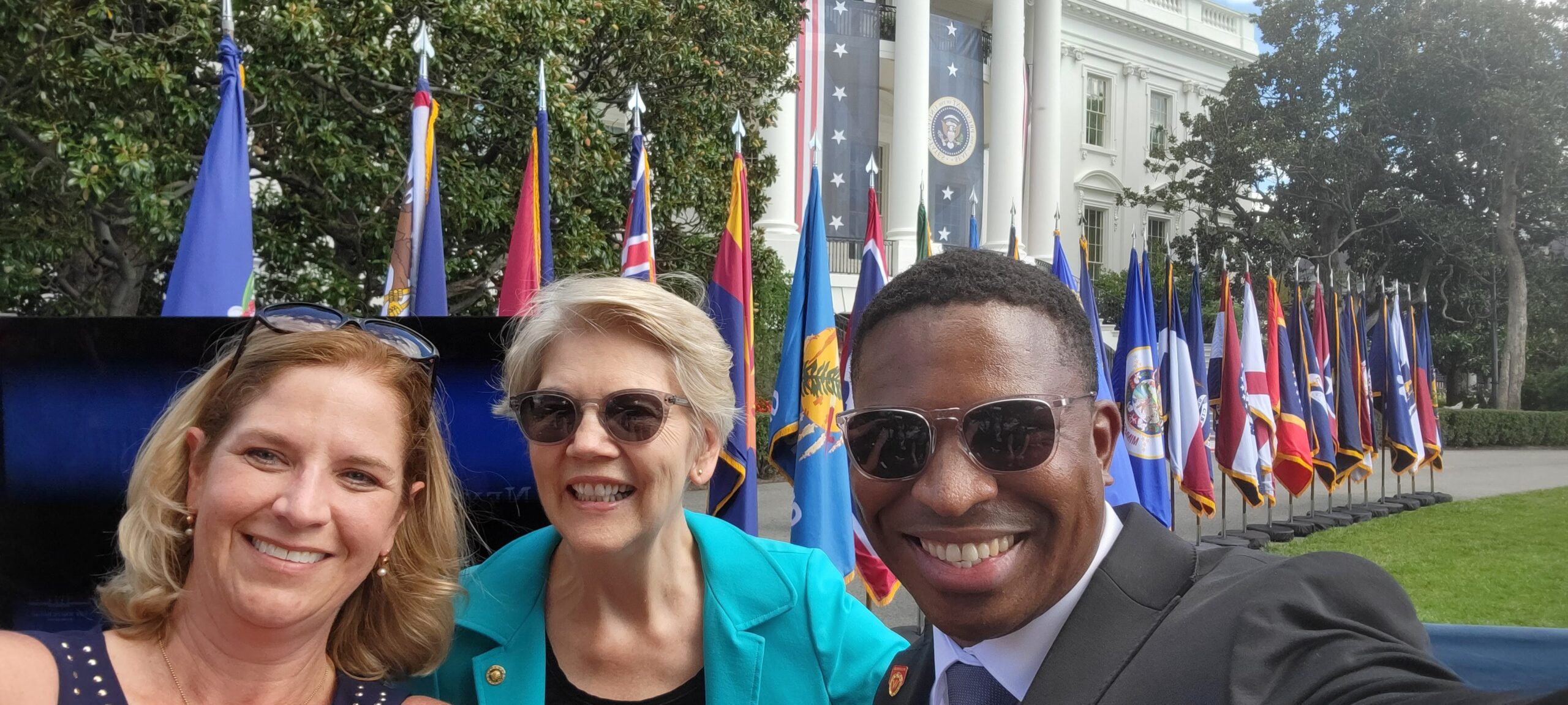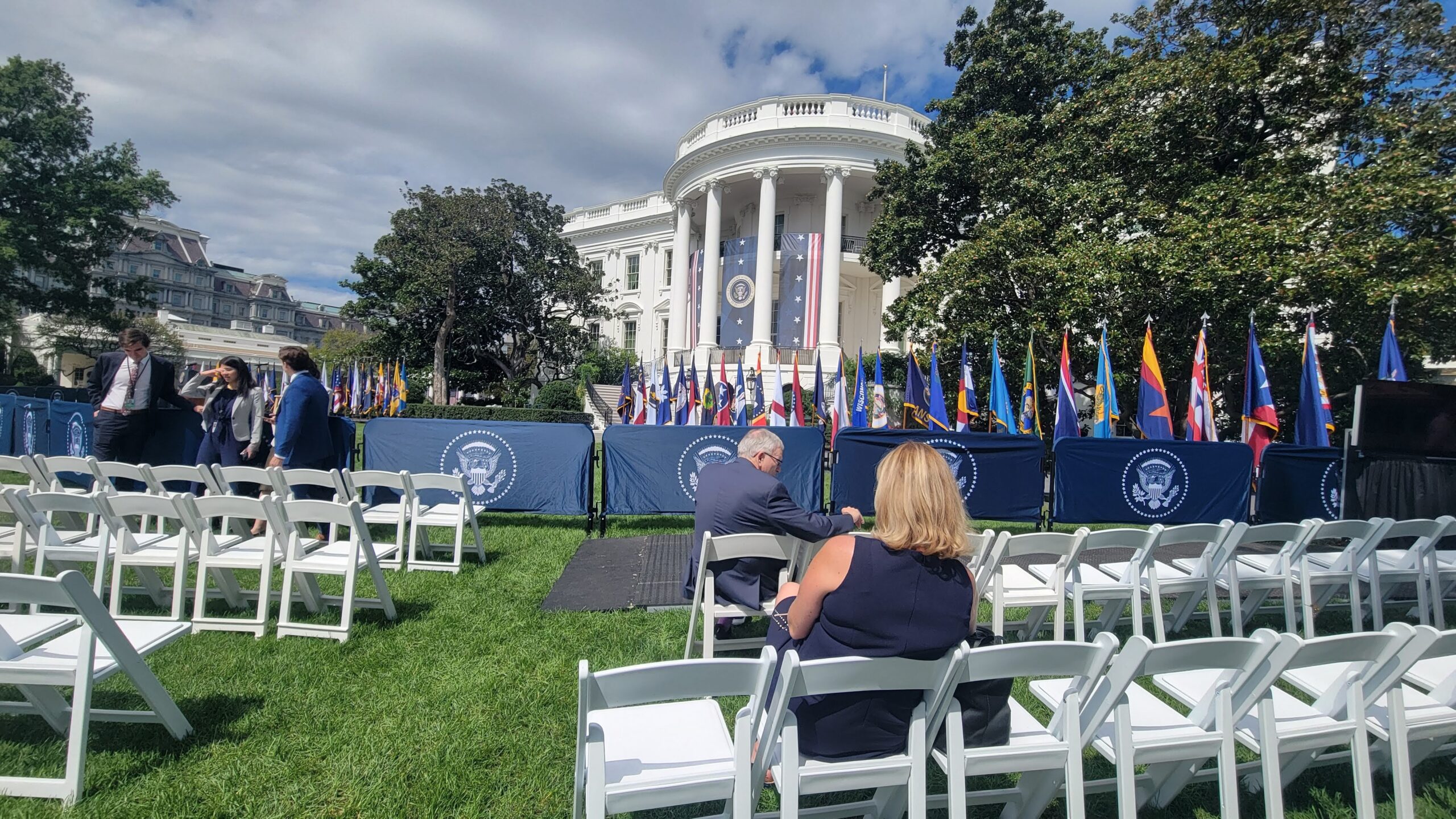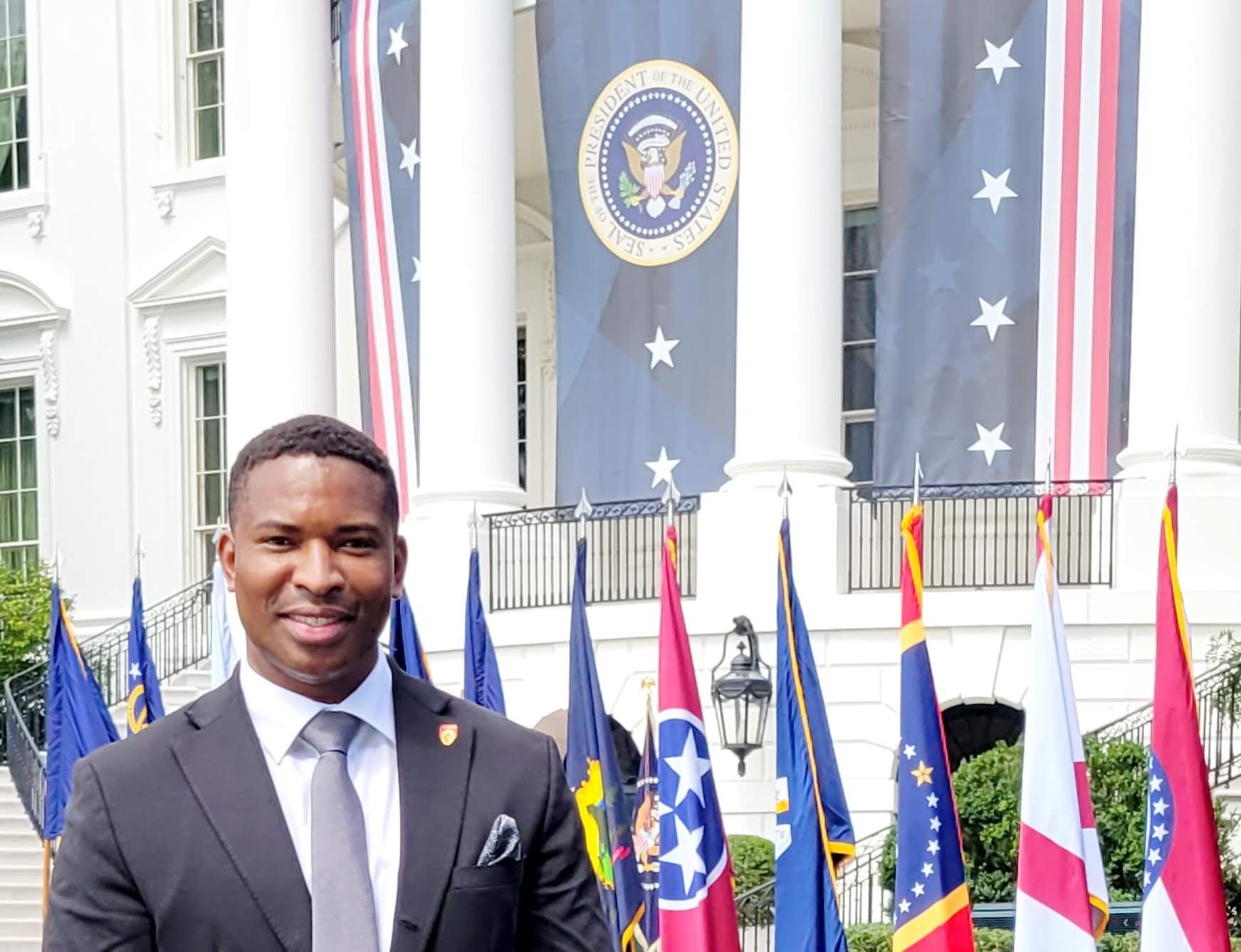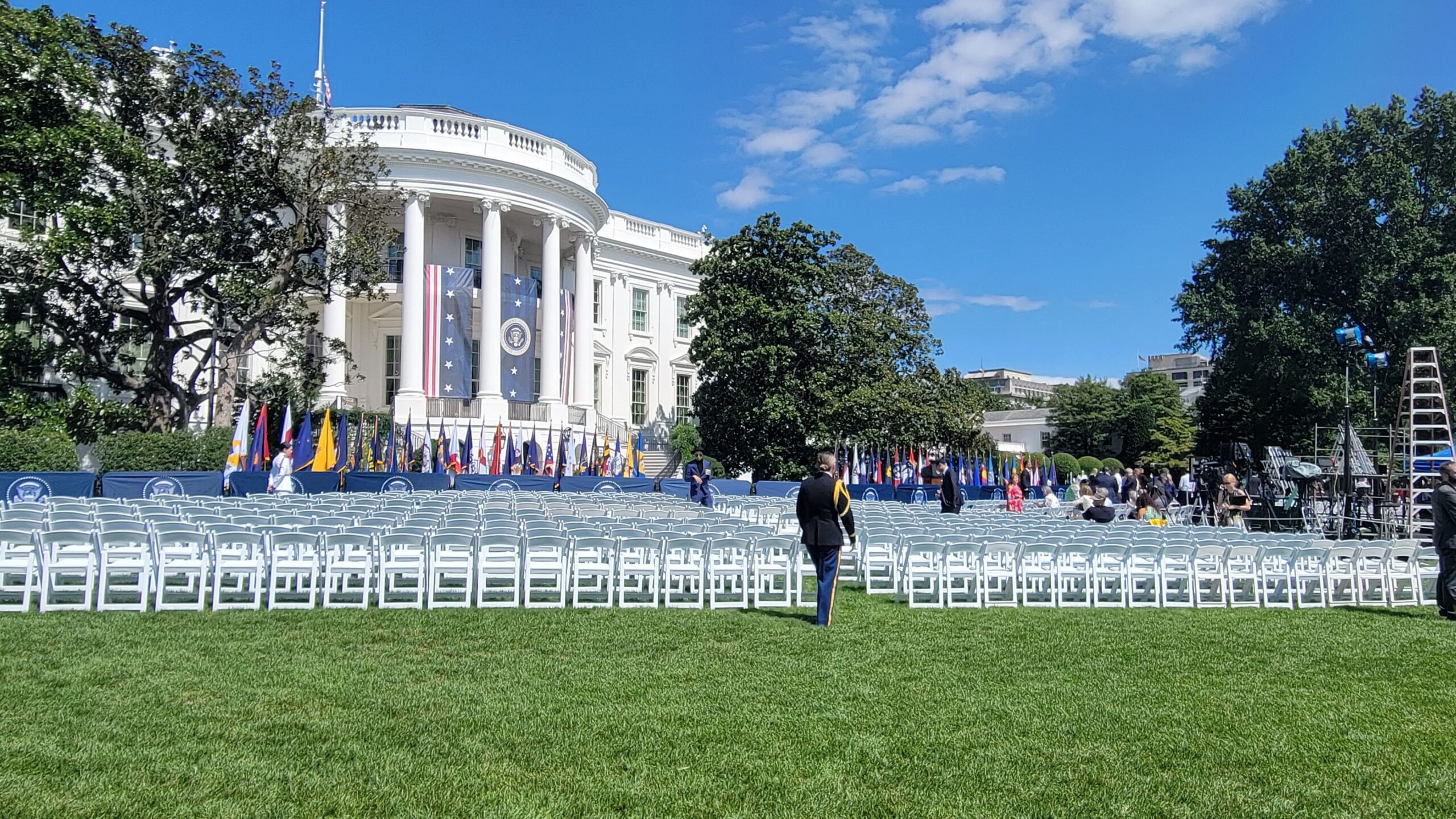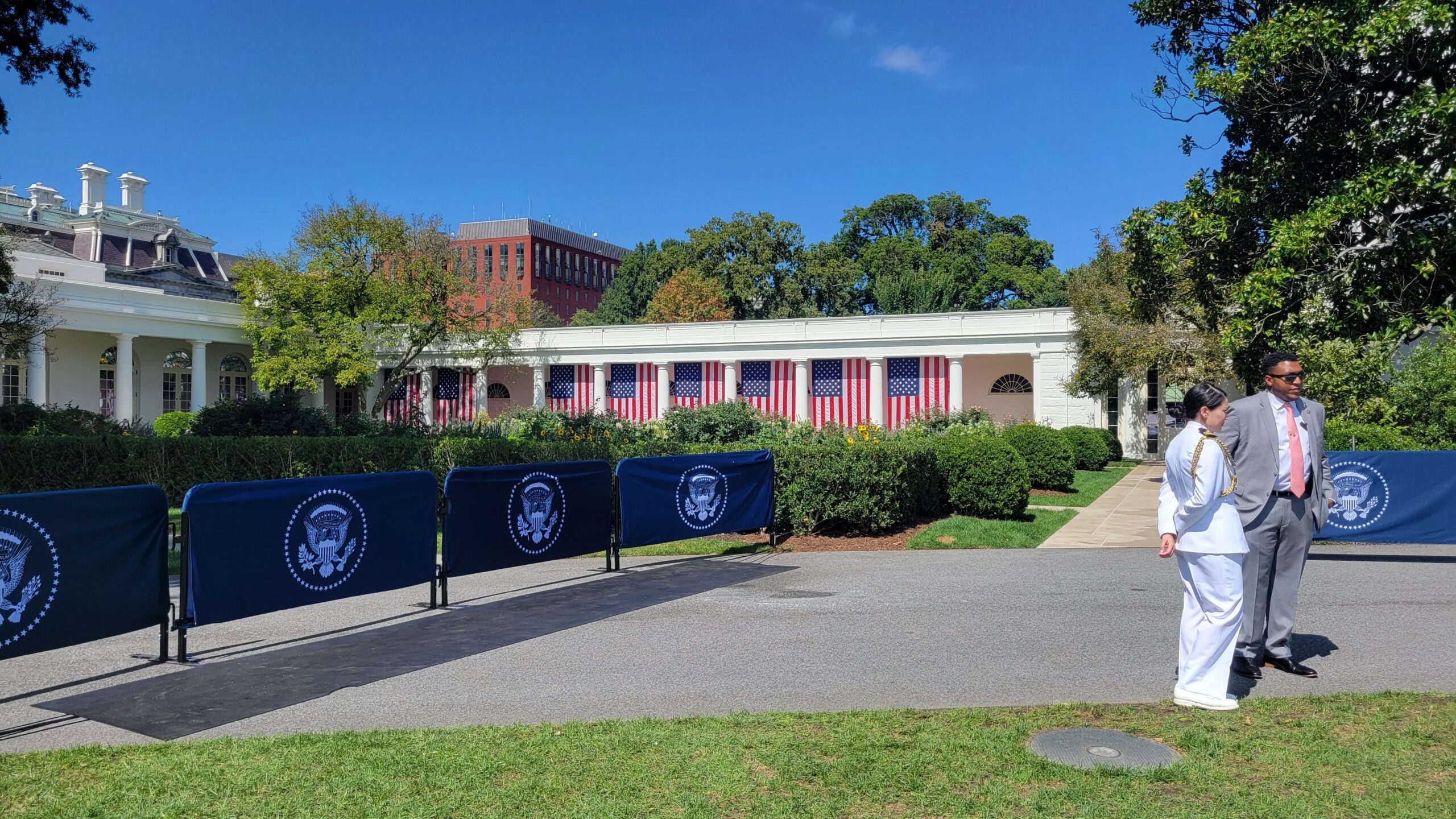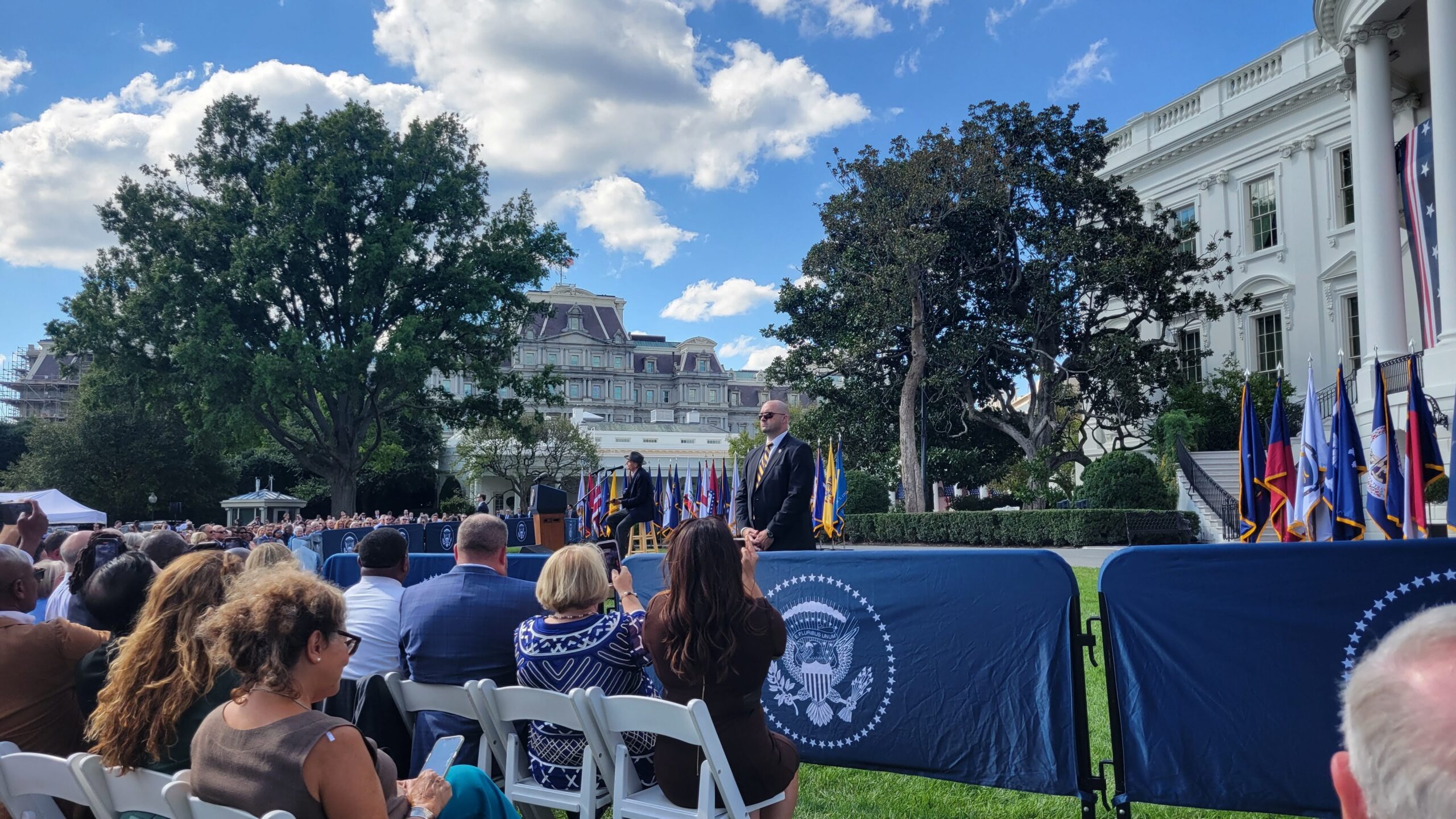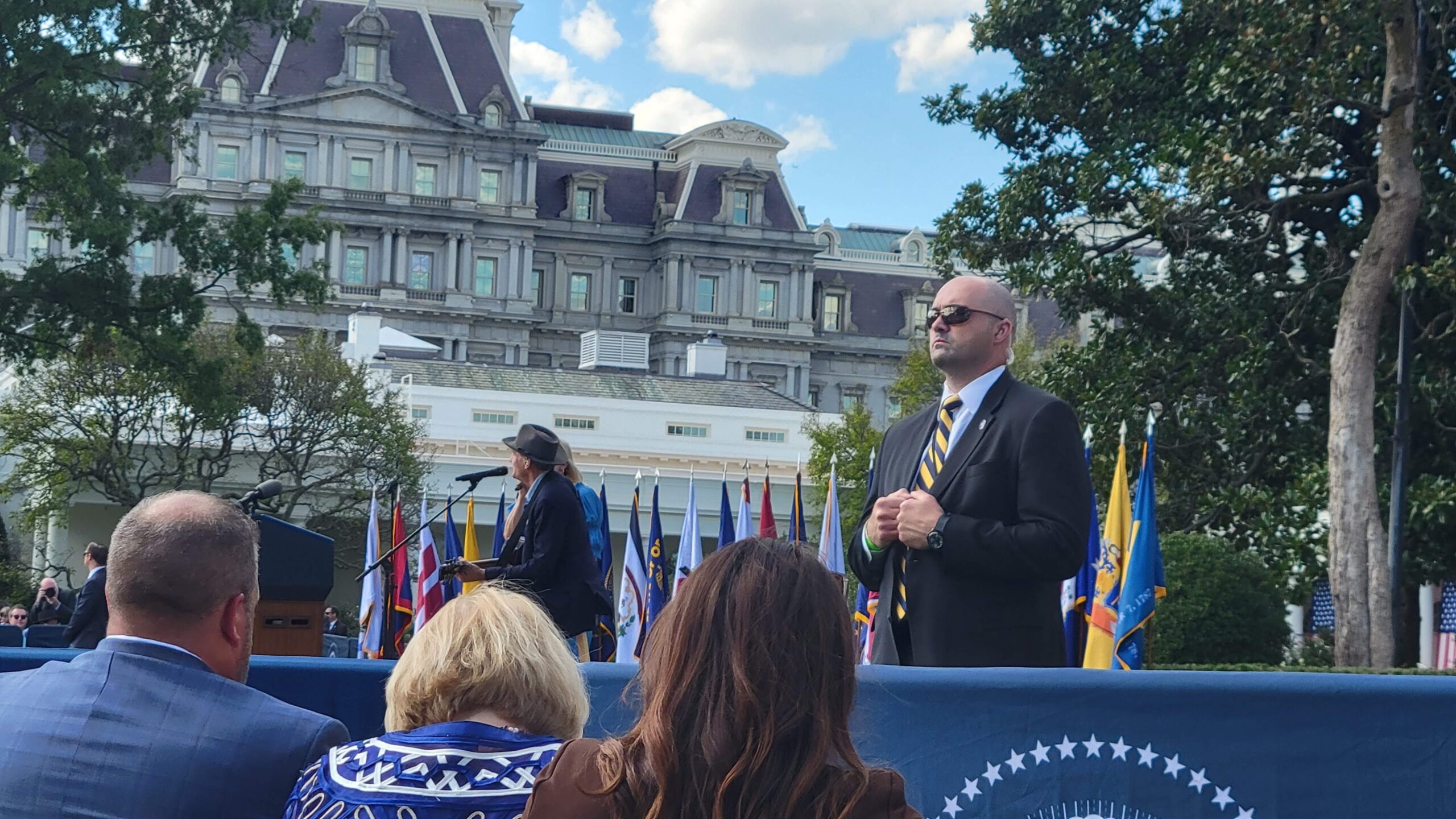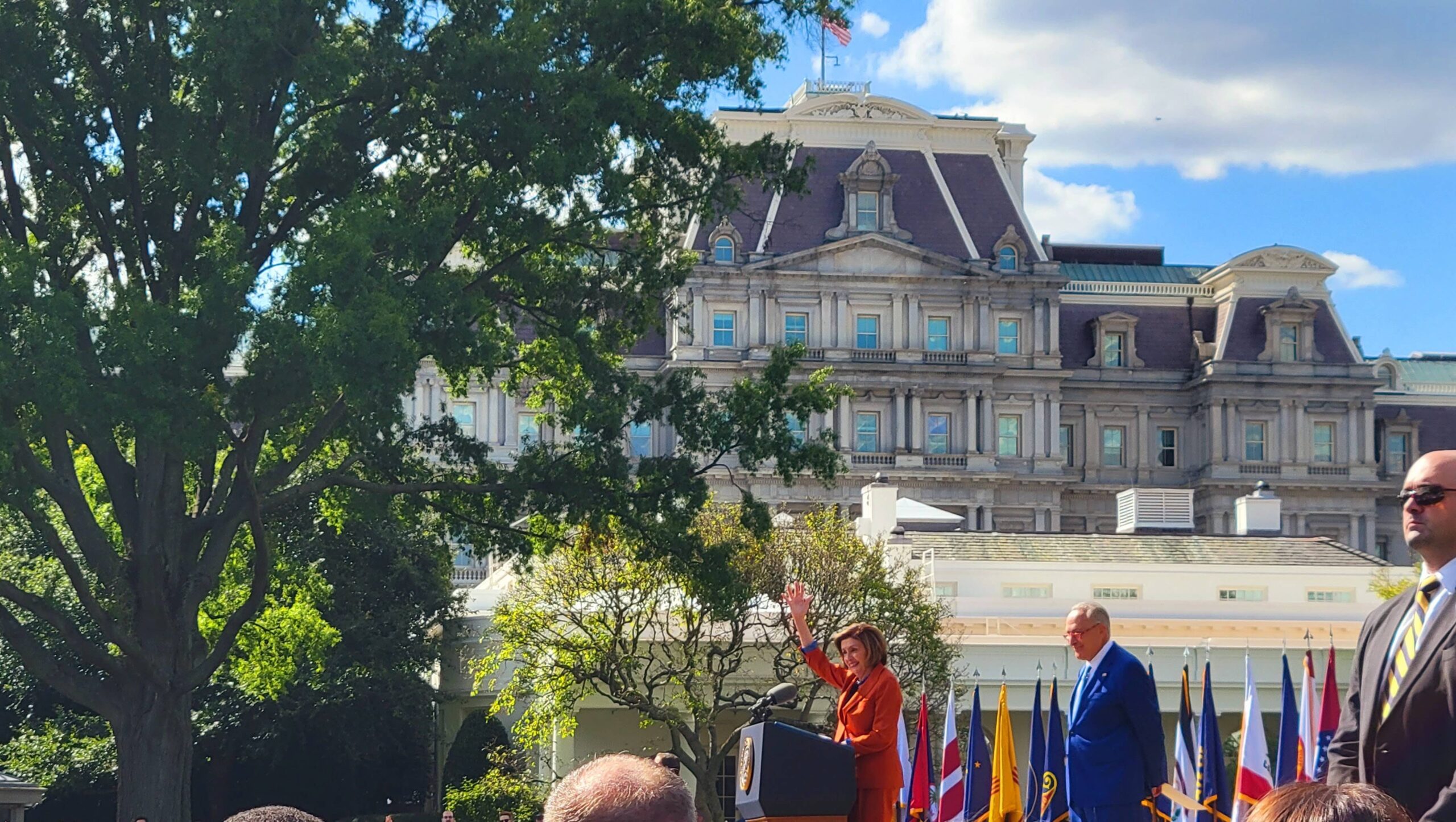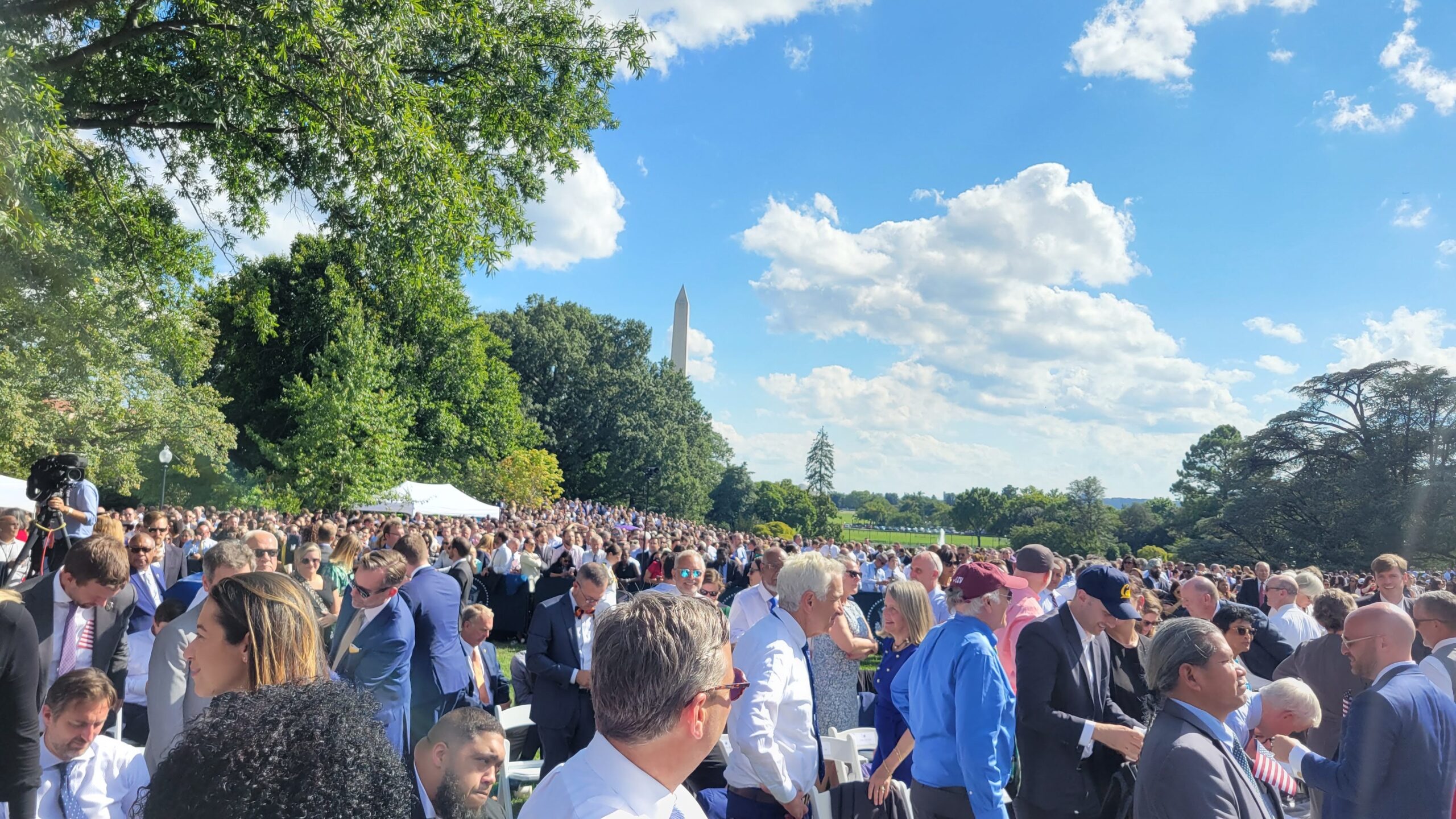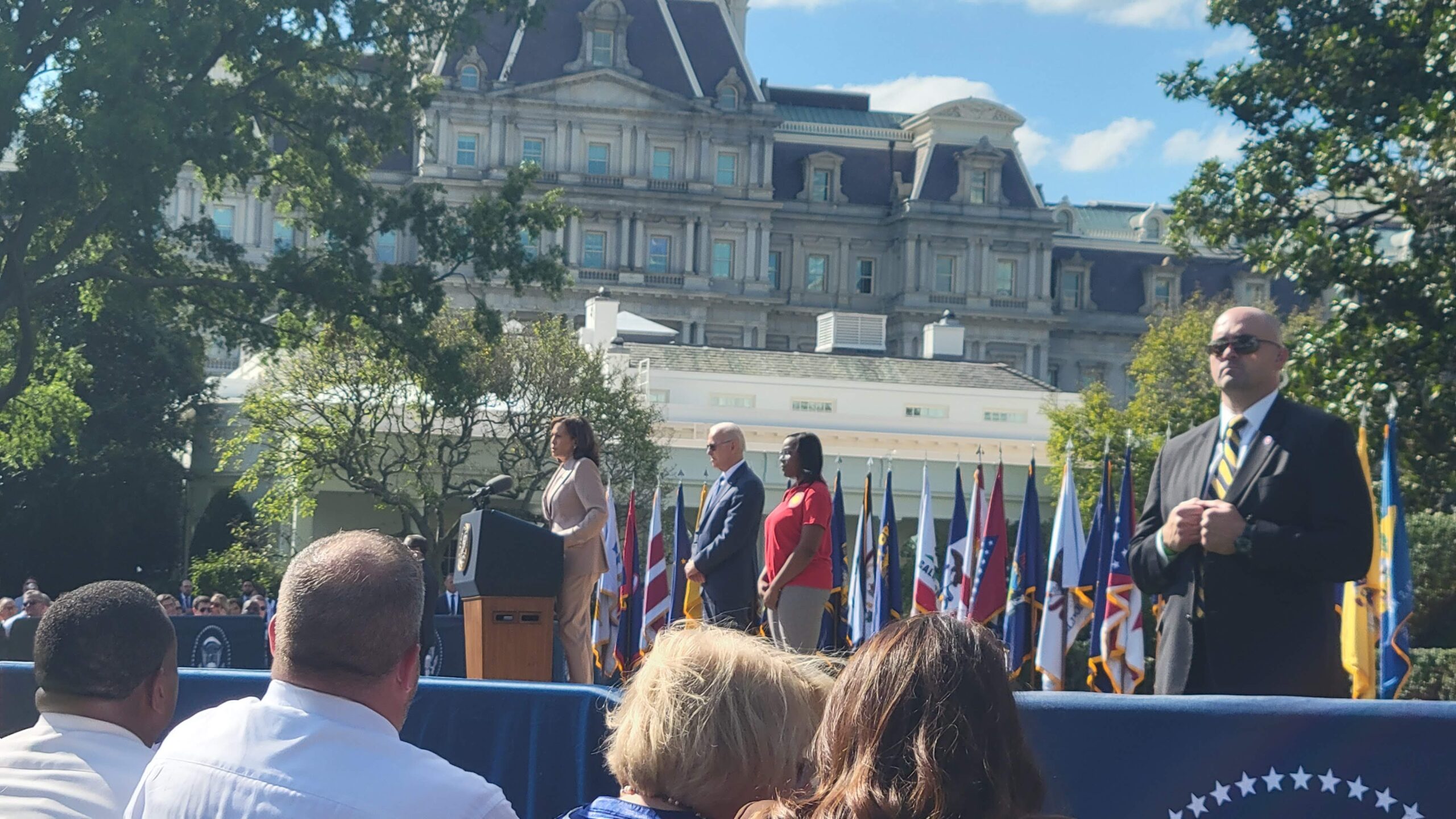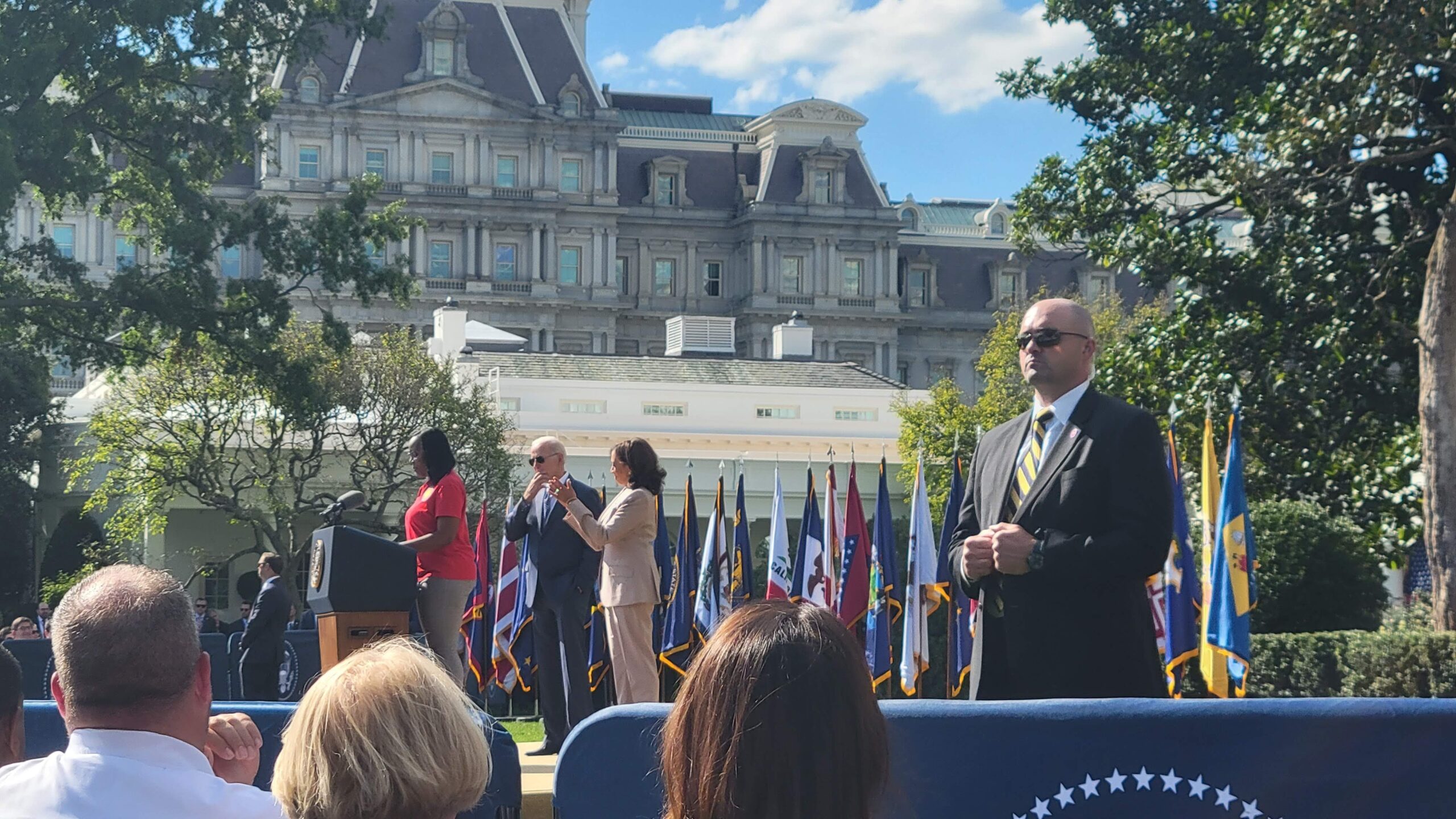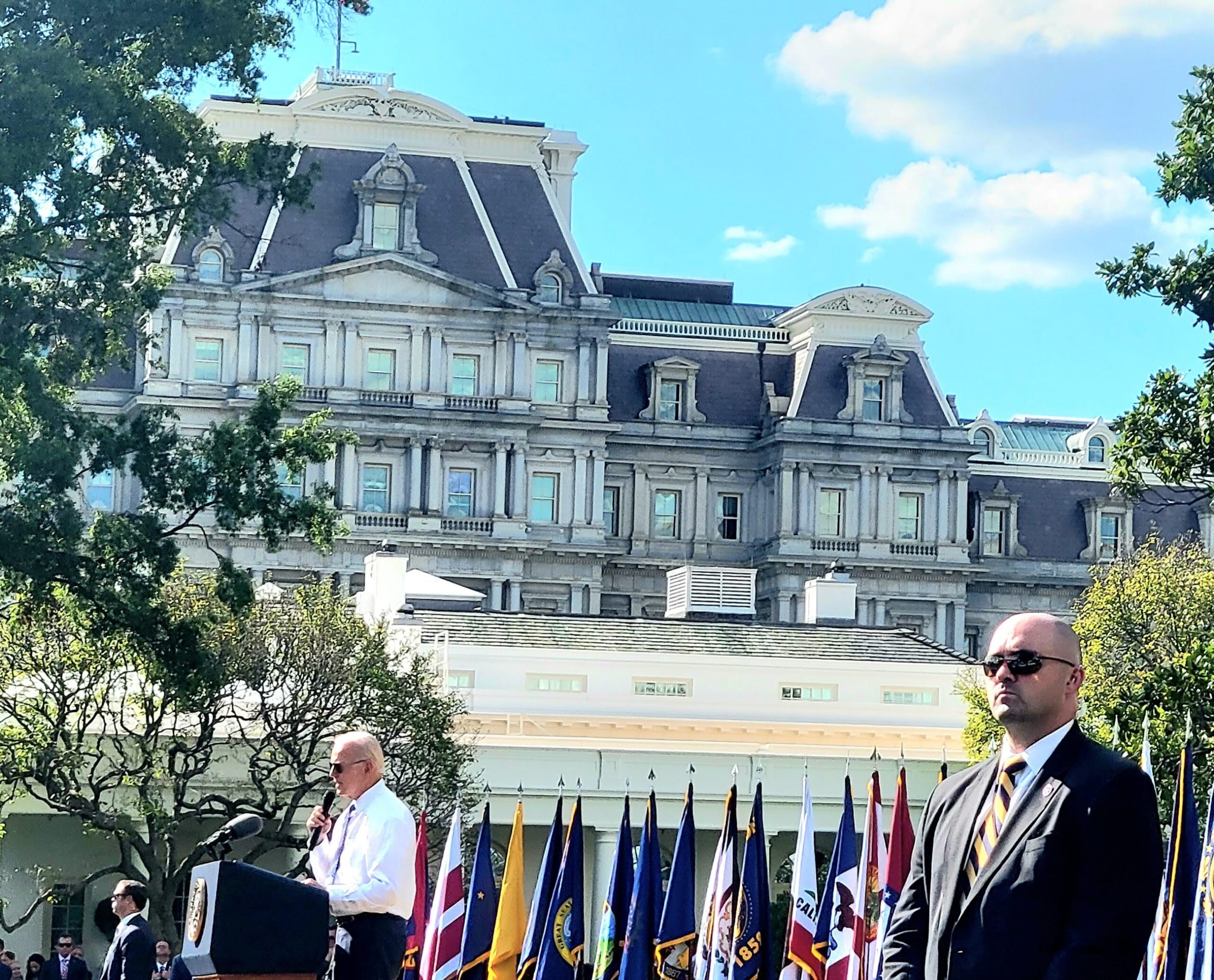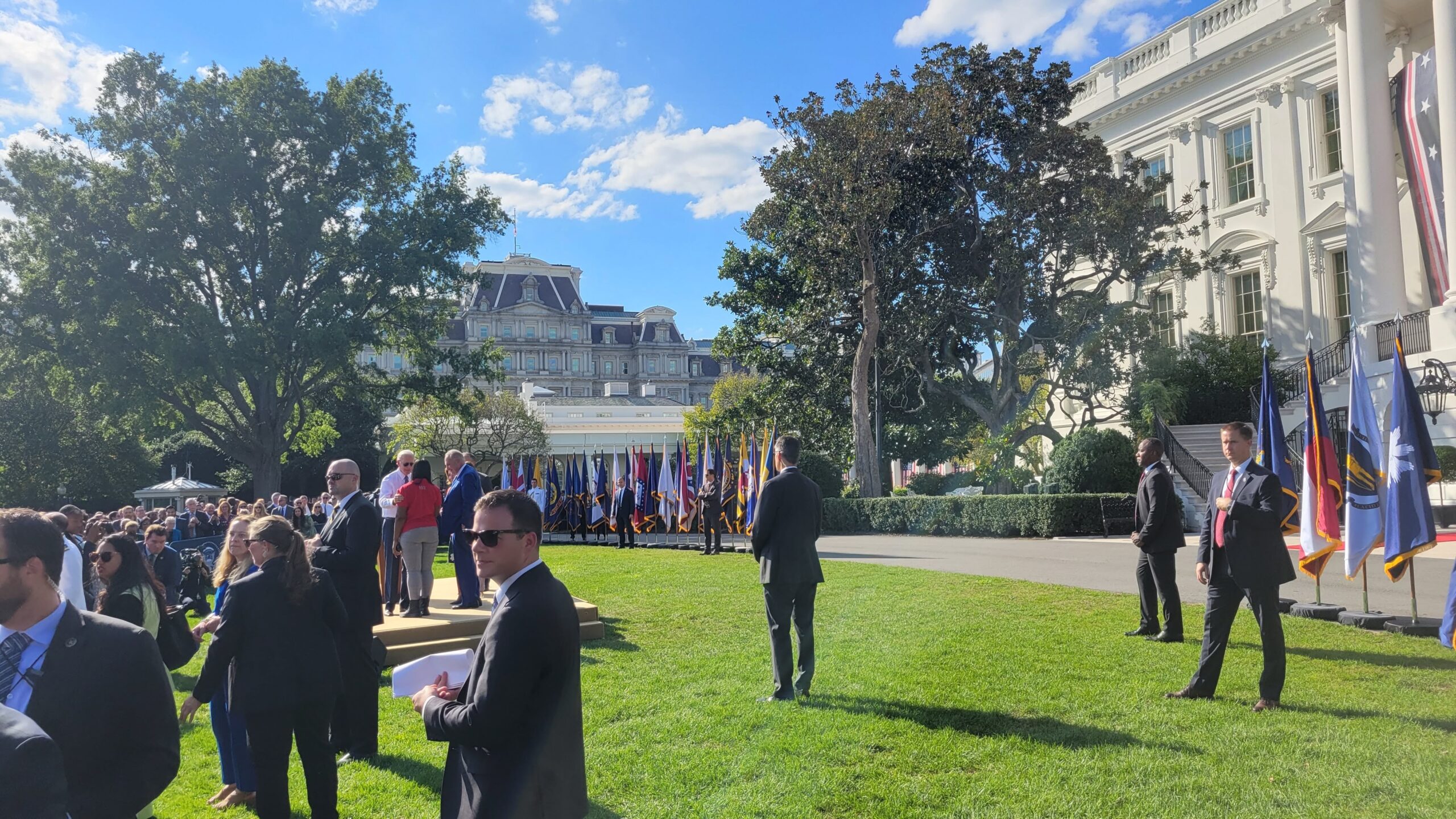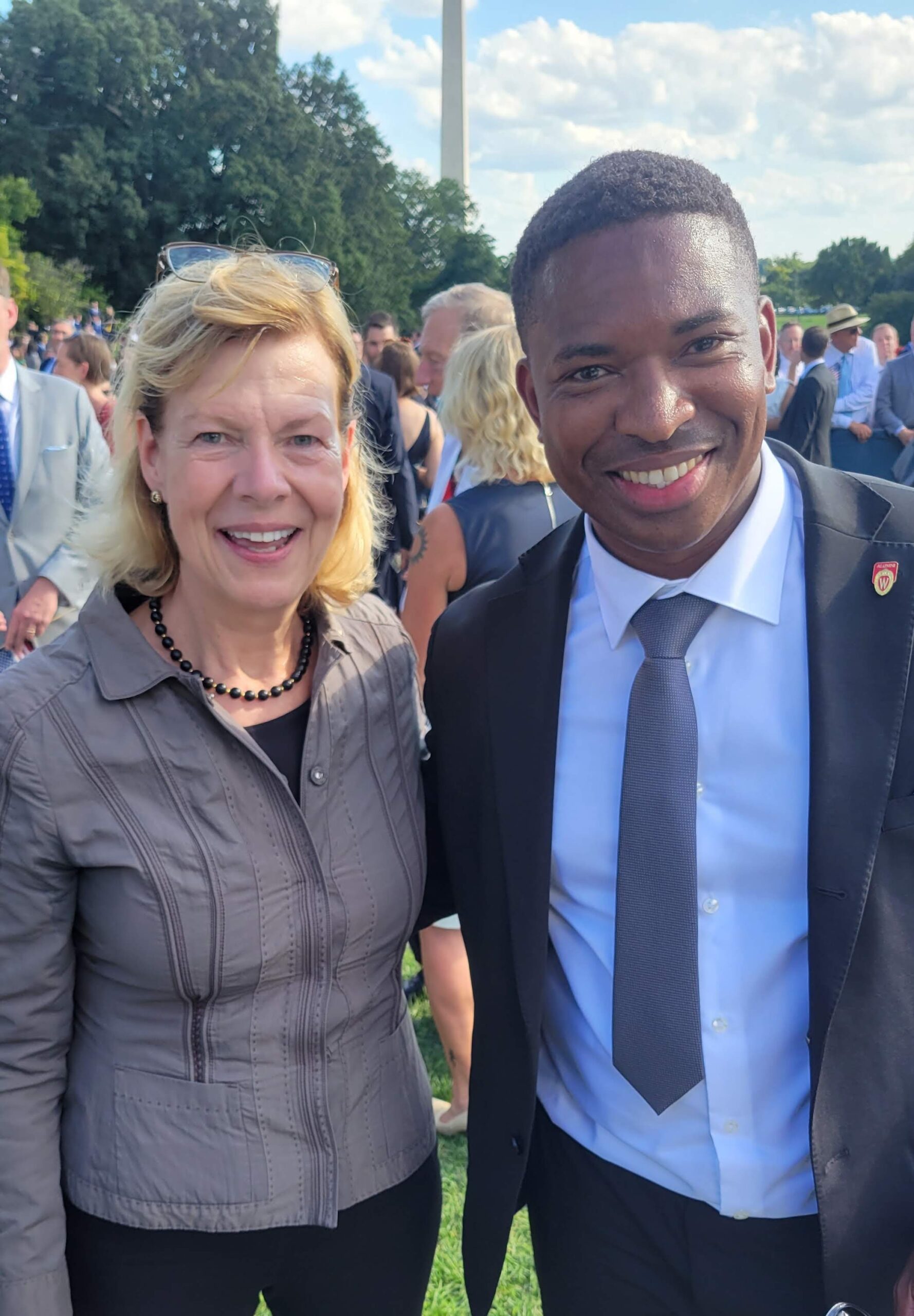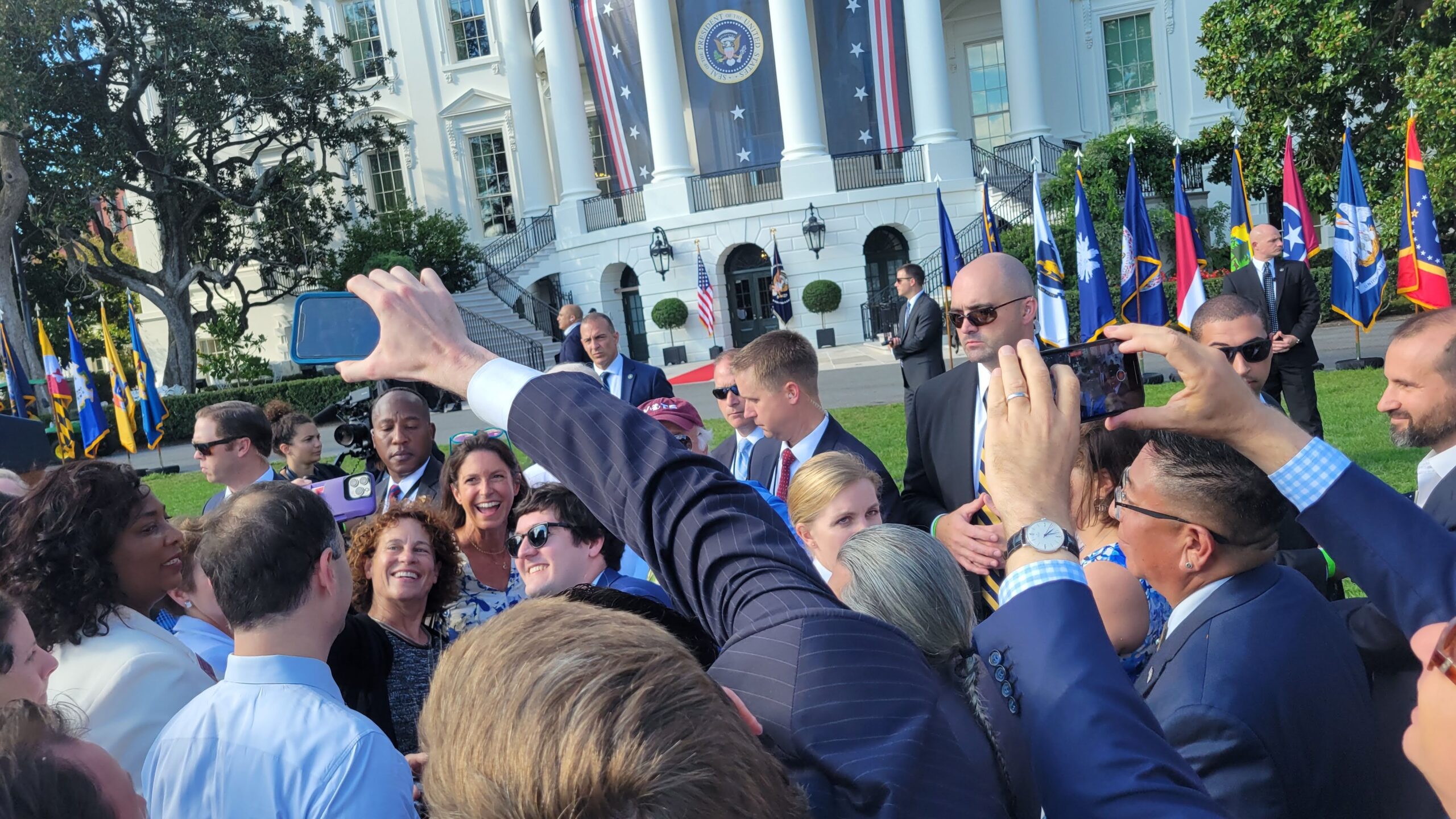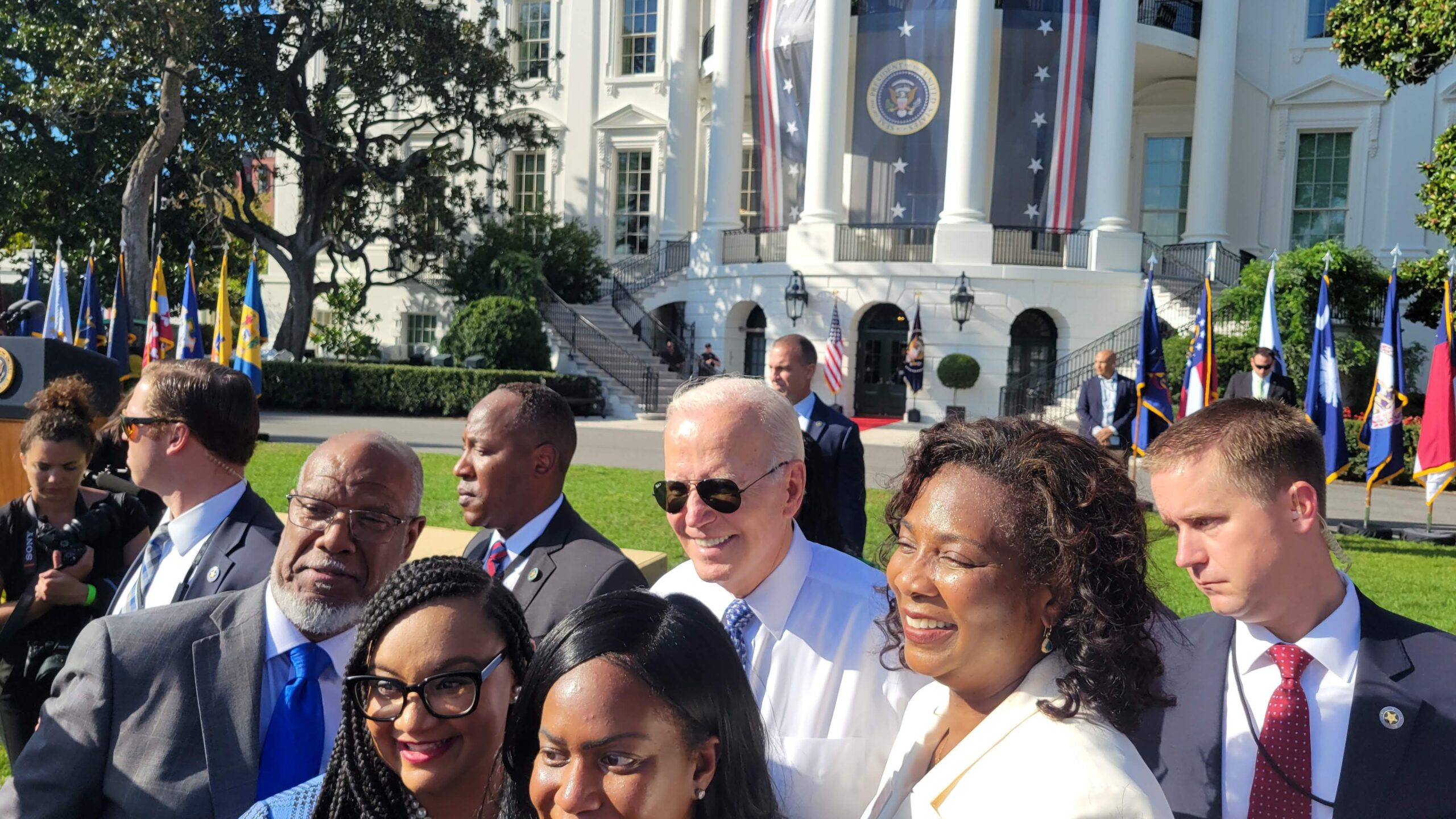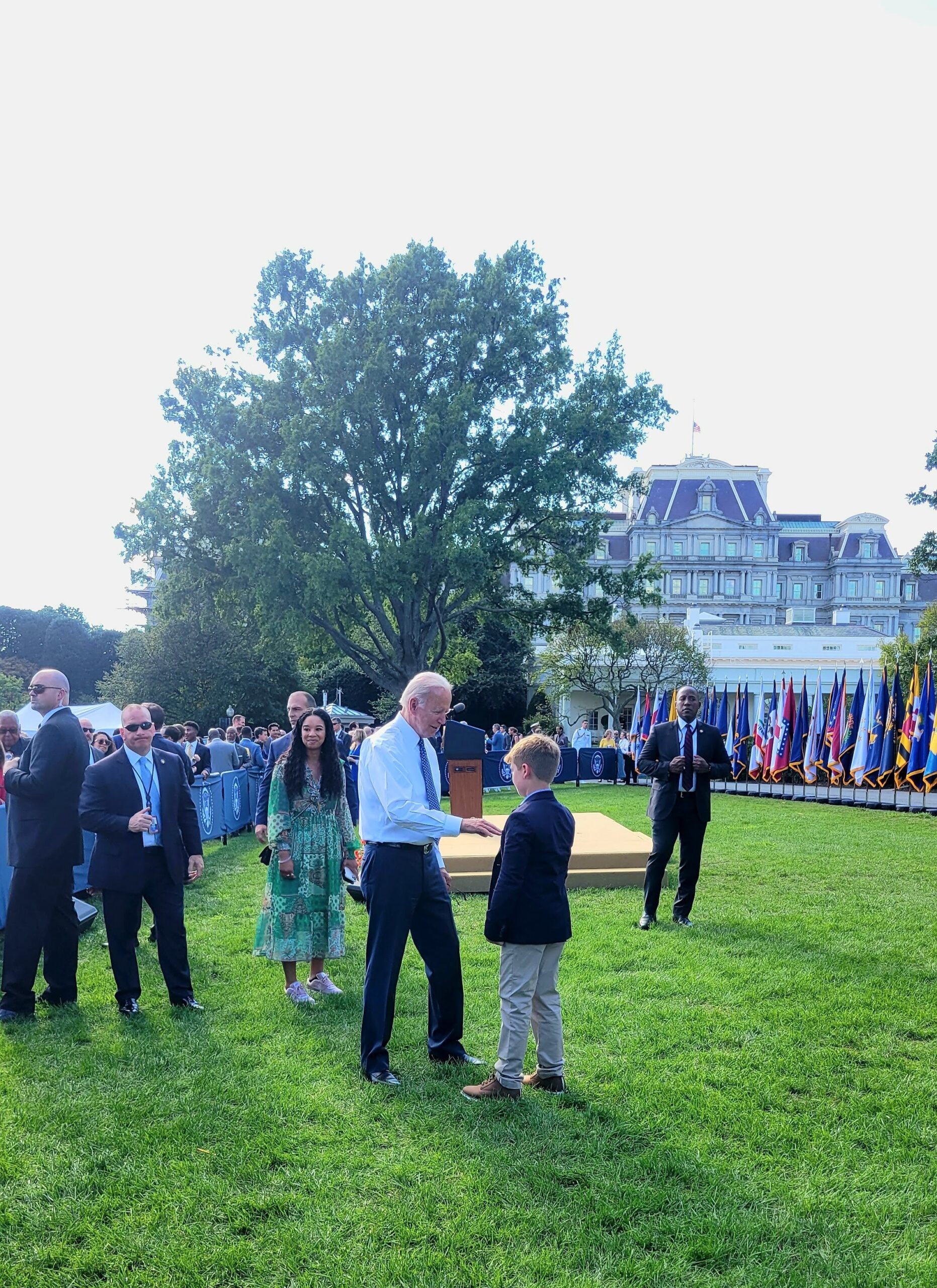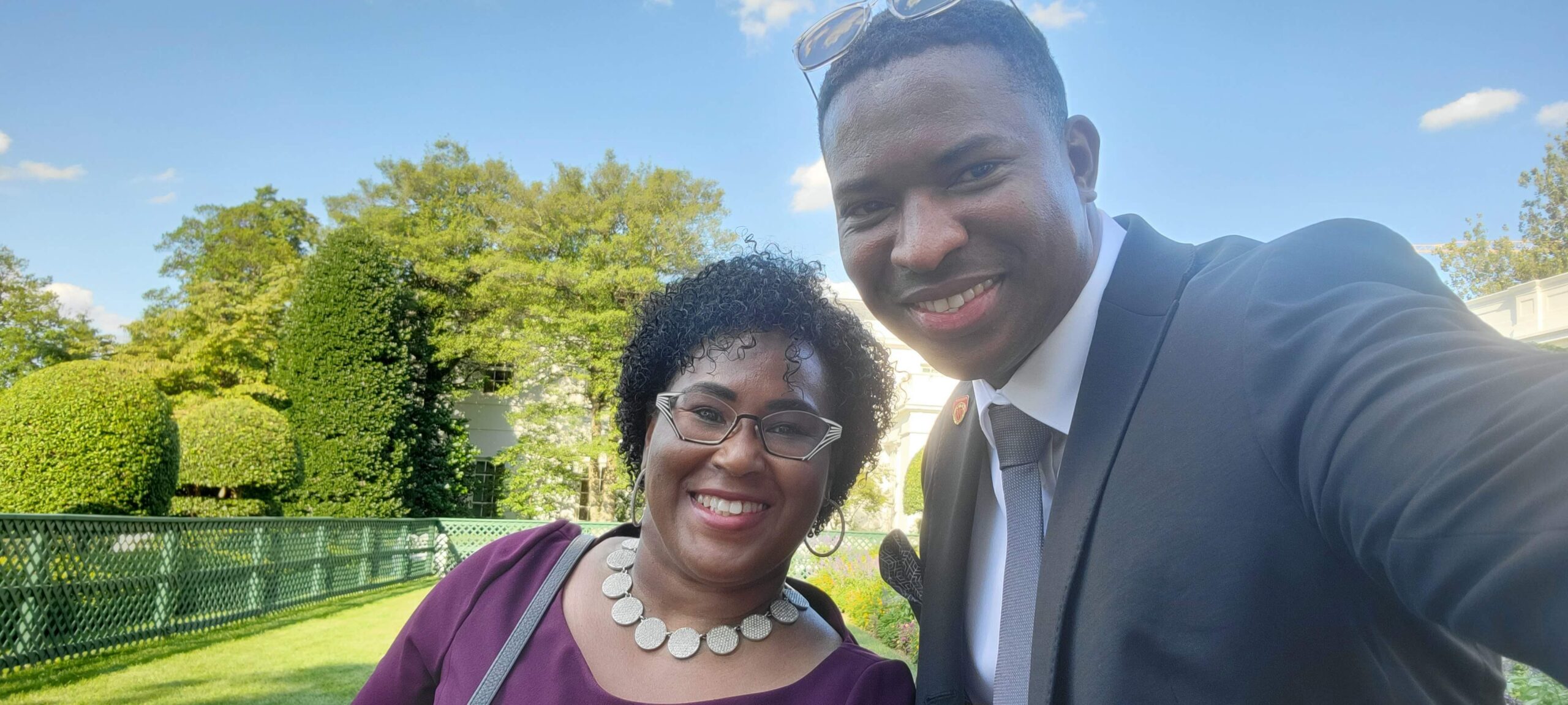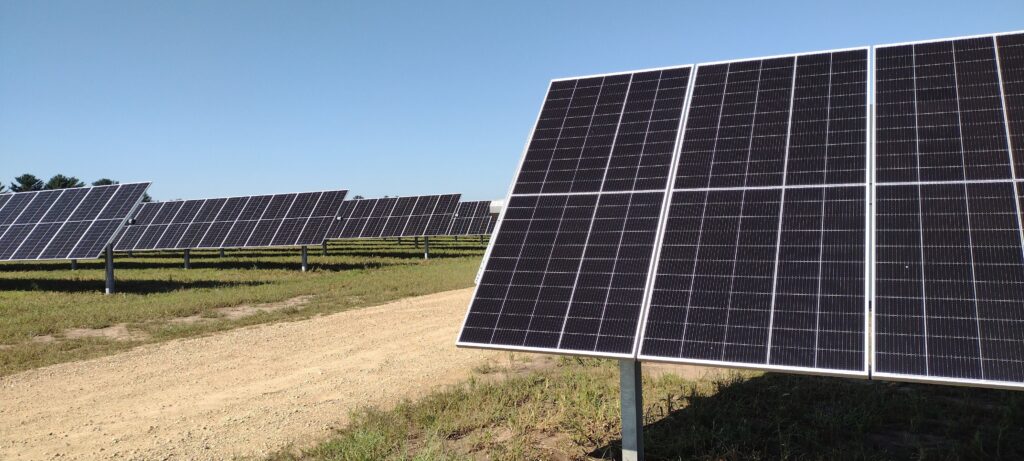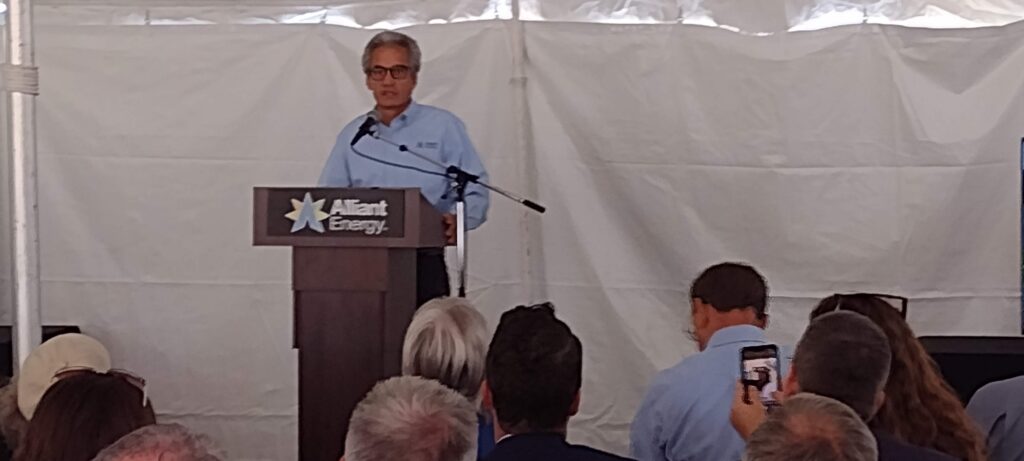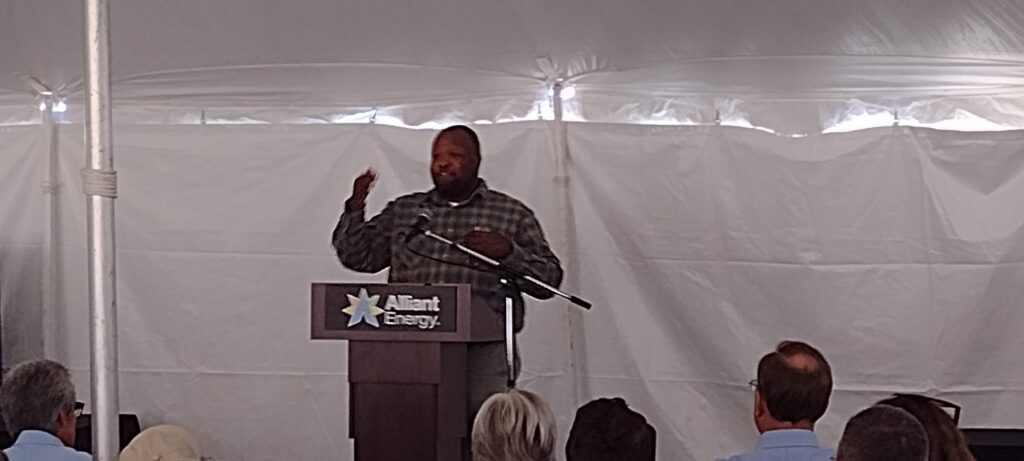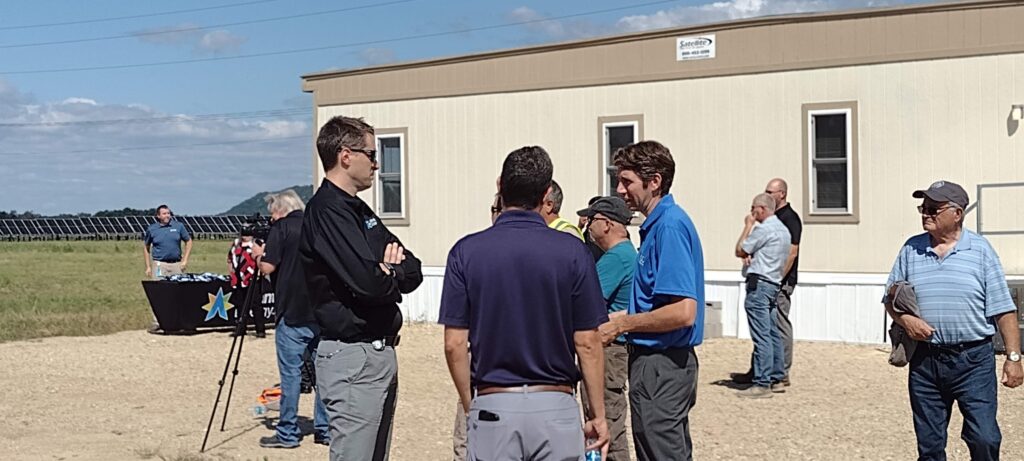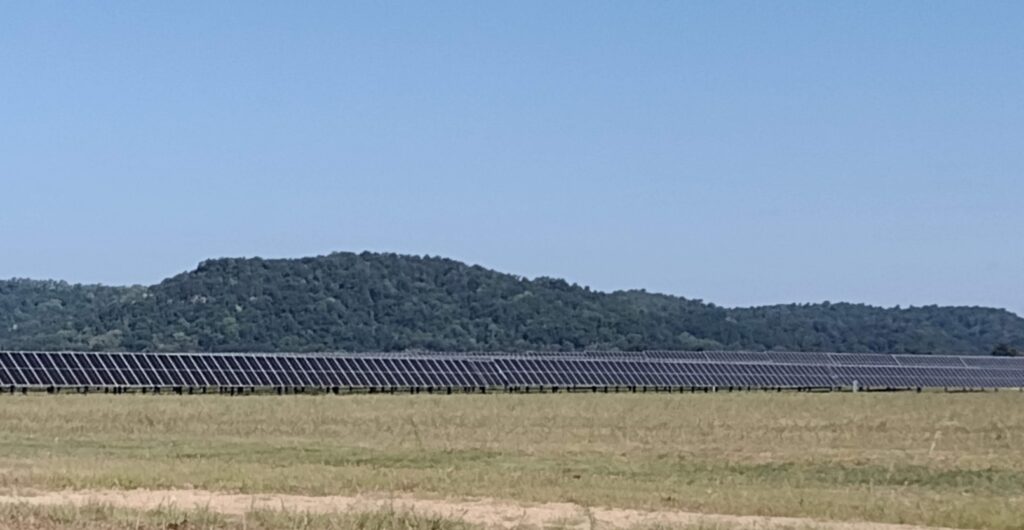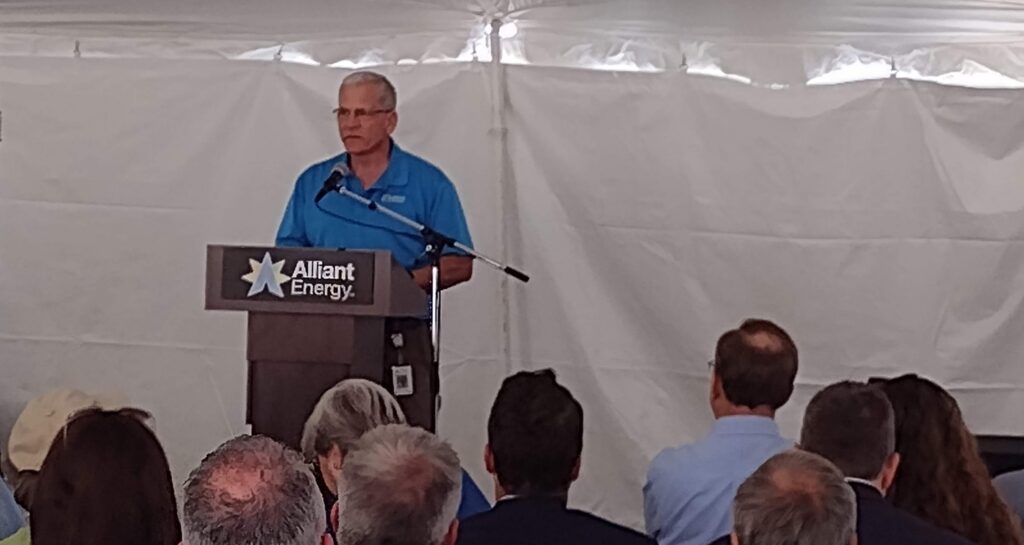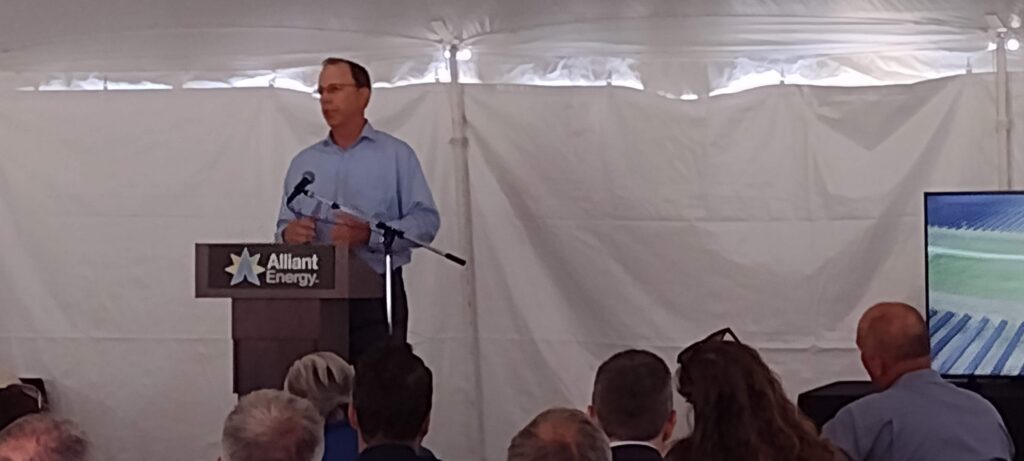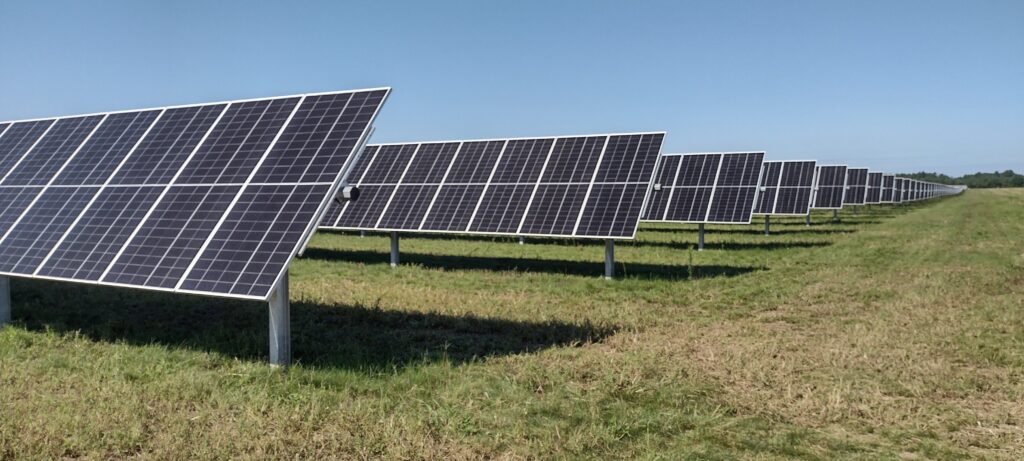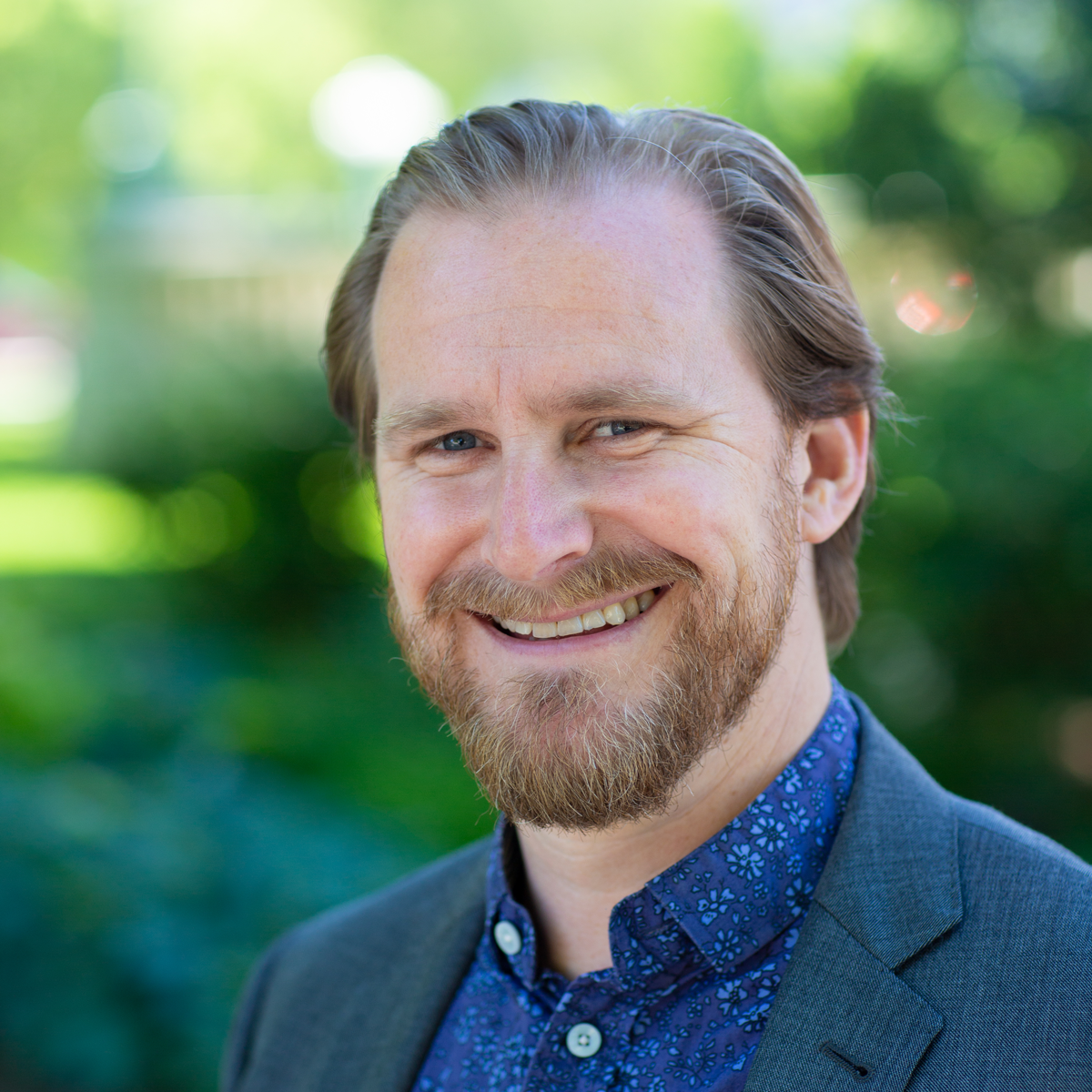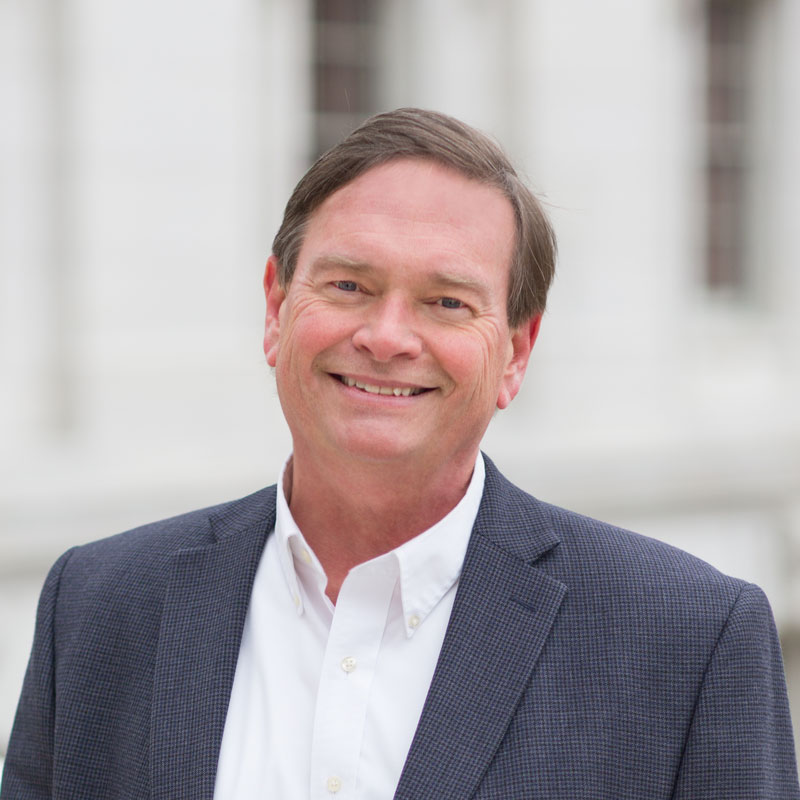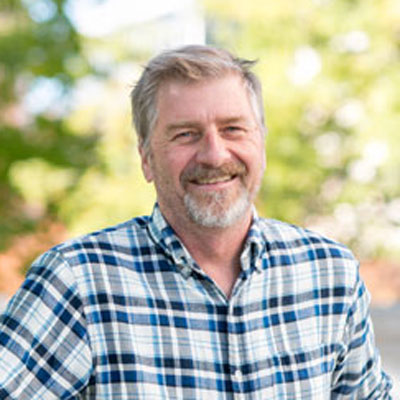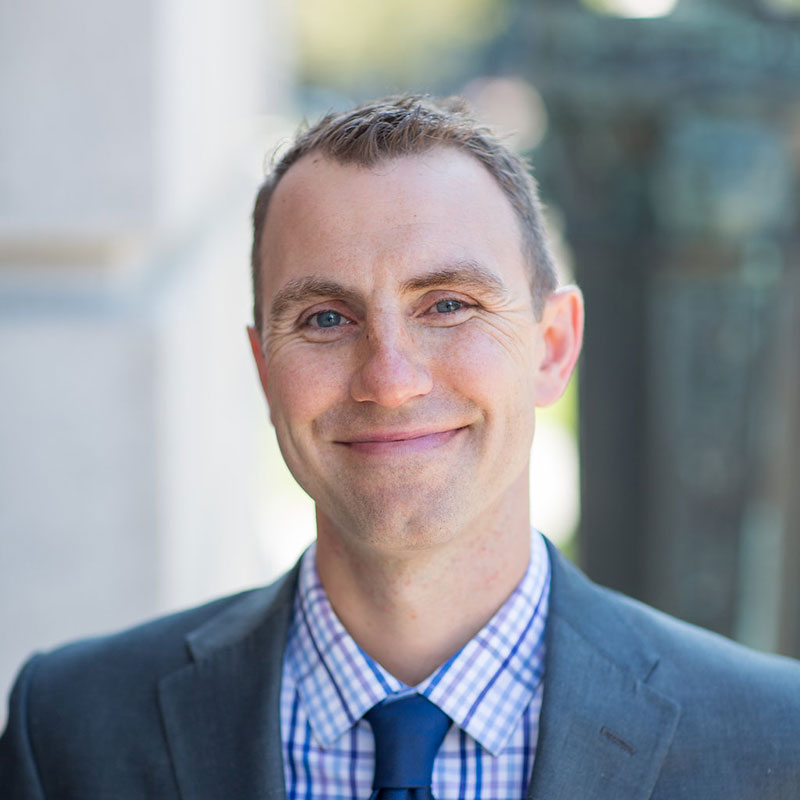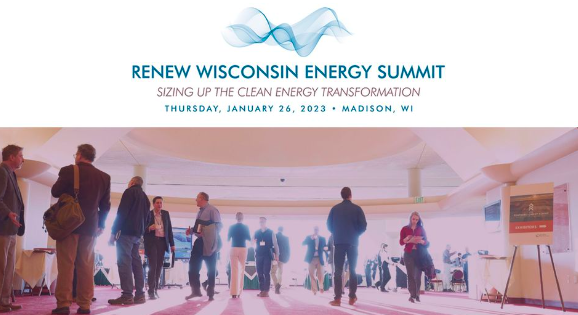
by RENEW Wisconsin | Jan 23, 2023 | Events, RENEW Wisconsin
During its twelfth annual Renewable Energy Summit, RENEW Wisconsin, with presenting sponsors greenpenny and Invenergy, will honor individuals and businesses who have made significant and lasting advances in clean energy development in Wisconsin. The Summit will take place Thursday, January 26, 2023, at Monona Terrace in Madison.
RENEW’s 2023 Summit, titled “Sizing Up the Clean Energy Transformation,” will take a close look at the forces unleashed by the Inflation Reduction Act, the most important climate action ever undertaken by the federal government, and assess the impact of this landmark law on Wisconsin’s energy landscape. Featured speakers include Michelle Moore, CEO of Groundswell; Jennifer Bumgarner, Principal Deputy Assistant Secretary for the U.S. Department of Energy Office of Congressional and Intergovernmental Affairs; and Wisconsin Public Service Chairperson Rebecca Cameron Valcq.
The awards are grouped under four categories:
Clean Energy Policymaker:
State Senator Robert Cowles
Clean Energy Pioneer:
City of Madison
Clean Energy Warriors:
Will Kenworthy, Vote Solar
Tim Lindl, Keyes and Fox
Denny Wroblewski, Northwind Solar
Josh Stolzenburg, Northwind Soar
Jim Pullen, Eagle Point Solar
Erick Shambarger, City of Milwaukee
Amy Heart, Sunrun
David Bender, EarthJustice
Nick Hylla, Midwest Renewable Energy Association
Clean Energy Honor Roll:
EnTech Solutions, Middleton
Solar-powered renewable natural gas (RNG) production facility
UW-Platteville, Platteville
Solar-powered school campus
Bad River Tribe (Ishkinoge Nawadide), Odanah
Solar-powered microgrid – resiliency for the reservation
Dominion Properties/Arch Solar, Shorewood
Vertical solar installation serving an office building
Dynamic Renewables/BC Organics, Greenleaf
Large-scale RNG production facility
Friends Meeting House, Madison
All-electric building tapping into onsite energy
Alliant Energy – Wood County Solar Farm, Nekoosa
Utility-scale solar generation
Clean Energy Policymaker: Senator Robert Cowles
Representing the 2nd Senate district in the Green Bay and Fox Valley area since 1987, Sen. Robert Cowles has been a dedicated and productive champion of clean energy policy throughout his Senate career. Over the years, Sen. Cowles has sought to advance energy efficiency and renewable energy through legislation that balances economic and environmental interests. Among Sen. Cowles’ accomplishments are several comprehensive bills that (1) established Wisconsin’s energy resource priorities (1994), (2) expanded the state’s utility local aids law to promote in-state renewable power (2003), and (3) safeguarded the statewide Focus on Energy program from harmful budget raids (2006). Ongoing clean energy initiatives championed by Sen. Cowles include those to allow convenience store operators to sell electricity for electric vehicle charging purposes and to clarify the legality of third-party-owned renewable energy systems built on a customer’s property to serve that customer.
Clean Energy Pioneer: City of Madison
In March 2017, Madison adopted an ambitious climate goal: to achieve 100% renewable energy and net zero carbon emissions for city operations by 2030 and communitywide by 2050. The award salutes the City for its conscientious and systematic approach to advancing local clean energy and ensuring that its investments and programs benefit the entire community. By the end of 2022, the City’s accomplishments encompassed the following:
- Installing more than 1,800 kilowatts (kW) of solar generation on its own facilities, including approximately 500 kW in 2022. Unlike other local governments, the City designs and installs most of its solar installations. This initiative also provides a platform for a solar training program aimed at underemployed and unemployed residents to better prepare them for future job opportunities in the solar marketplace.
- Partnering with Madison Gas & Electric to purchase the output from the Hermsdorf solar farm in southeast Madison. The 8 MW array went live in April 2022 and now offsets 22% of the City’s electricity usage.
- Leveraging the installation of more than 300 solar PV systems on homes and multifamily buildings through its MadiSUN program, including 64 in 2022.
- Acquiring, by the end of 2022, 85 electric vehicles, more than 150 hybrid-electric vehicles, and the first all-electric fire truck operating in the United States. The City is also testing three all-electric buses.
Clean Energy Pioneer – Warriors
The recognition ceremony will also honor businesses and individuals who, at various times, led the campaign to enable Wisconsin electricity customers to access third-party-financed renewable energy systems installed on their property. This has been a long-standing policy priority for RENEW, stretching back to 2012. After years of being stalemated at the Public Service Commission, Wisconsin’s solar industry finally received some good news. In December 2022, the Commission affirmed the legality of a private contract between a utility customer and a solar energy provider. This will allow, on a limited basis, electricity customers to access solar energy onsite through leases or service agreements, so long as the contract meets certain criteria.
The ceremony will conclude with the 2022 Clean Energy Honor Roll, in which RENEW will recognize seven clean energy projects in Wisconsin that recently commenced operation. Whether on the basis of their productivity, innovativeness, attention to detail, scale, resourcefulness, or efficacy in reducing carbon emissions, these seven projects showcase the skills and know-how Wisconsin stakeholders bring to the clean energy marketplace in the Badger State.
This annual event features an exposition hall, breakout sessions, and industry professionals discussing current and future opportunities for advancing clean energy in Wisconsin.
Click here for more information on the 2023 Summit program agenda, speakers, and registration. For press passes, please email Jodi Jean Amble (jodi@renewwisconsin.org).
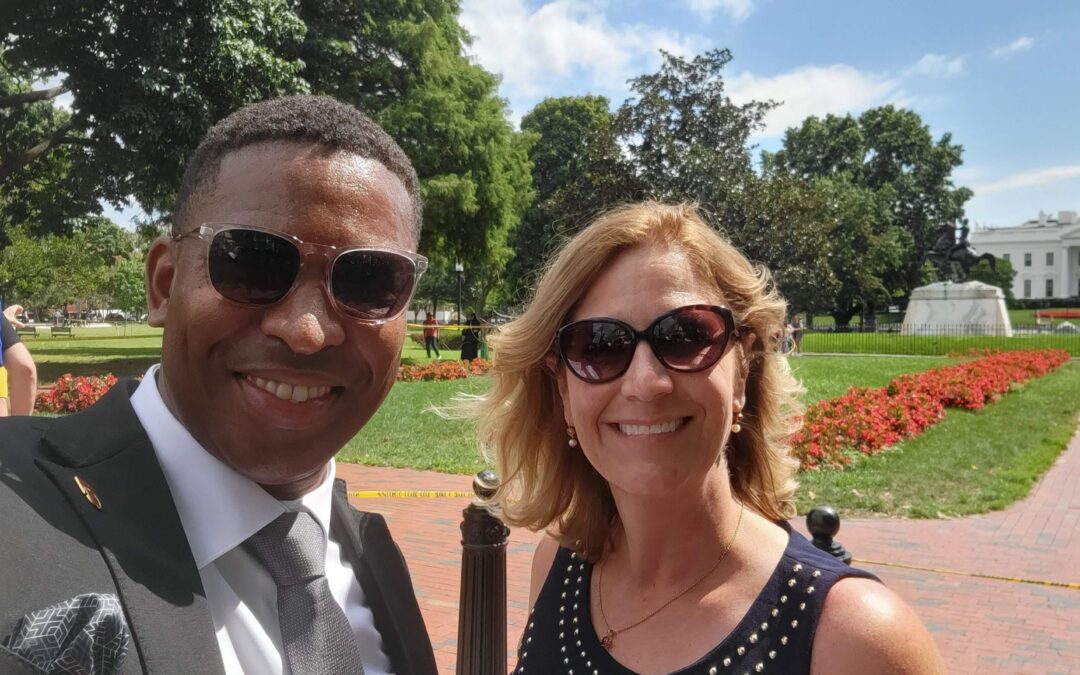
by Francisco Sayu | Sep 16, 2022 | Community, Electric Vehicles, Electrification, Events, Solar, Sustainability
With an invitation extended by Governor Tony Evers, RENEW’s Interim Executive Director, Jessica Niekrasz, and Emerging Technology Director, Francisco Sayu, joined President Biden, his cabinet, and lawmakers at the White House on Tuesday, September 13, to celebrate the Inflation Reduction Act (IRA).
The celebration – including a surprise appearance by James and Kim Taylor – was a stunning reminder of our collective power to accomplish “big things” when we work together. “Today offers proof that the soul of America is vibrant, the future of America is bright, and the promise of America is real,” Biden said during his speech on the South Lawn.
RENEW applauds the Biden administration for signing the IRA – the most significant climate legislation ever passed in the U.S. The IRA includes $369 billion to help families save money on energy, improve quality of life, create stable jobs, and fight climate change by reducing carbon emissions.
RENEW is dedicated to building a stronger, healthier, more vibrant Wisconsin through the advancement of renewable energy. The clean energy investments in the IRA will boost renewable energy and beneficial electrification in Wisconsin, limiting our dependence on imported gas and petroleum. This market transformation is needed to begin transitioning our economy away from fossil fuels that bleed our state’s economy by $14 billion yearly.
Wisconsin Families that take advantage of the clean energy incentives and electric vehicle tax credits in the IRA could save more than $1,000 per year. Here are some of the benefits available to Wisconsin residents:
- Up to $14,000 in direct consumer rebates for families to buy heat pumps or other energy-efficient home appliances, saving families at least $350 per year.
- 30% tax credit to install rooftop solar systems, saving families $9,000 over the system’s life or at least $300 per year.
- Up to $7,500 in tax credits for new electric vehicles and $4,000 for used electric vehicles, helping families save $950 per year.
The clean energy investments in the IRA support the Governor’s climate goals, as outlined in Wisconsin’s Clean Energy Plan. These investments will help power homes, businesses, and communities with homegrown renewable energy, improve health outcomes, and create stable jobs for residents of Wisconsin.
RENEW was honored to be at the White House representing the great state of Wisconsin and thanks Governor Tony Evers for this incredible opportunity. Inclusion at this historic celebration is a testament to the incredible work the RENEW team has been doing for over thirty years. We look forward to helping our state take advantage of the opportunities offered by the IRA, and will continue to support access to clean energy for families, businesses, and communities in Wisconsin.
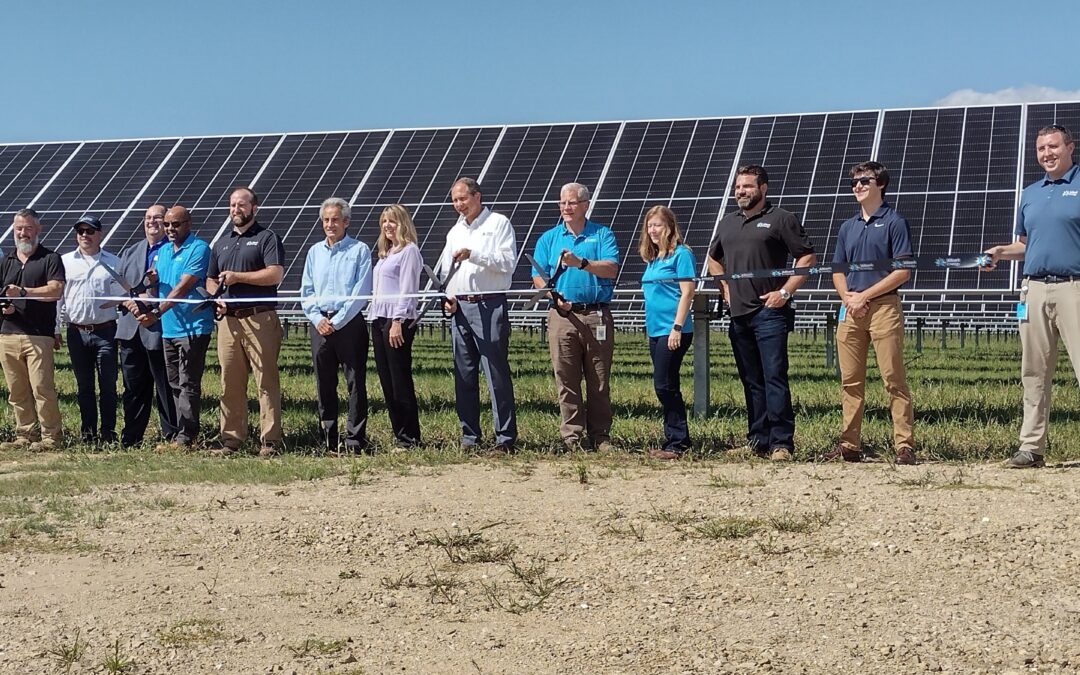
by Michael Vickerman | Aug 29, 2022 | Community, Events, Local Initiatives, Solar, Sustainability
Bear Creek Project Ushers in Gigawatt of Solar Capacity
Alliant Energy’s ambitious solar portfolio debuted on August 22 with a ribbon-cutting ceremony at its 50-megawatt (MW) Bear Creek project near Lone Rock in Richland County. Electricity produced from Bear Creek should equate to the annual consumption of approximately 13,000 residences.
Bear Creek will be followed by 11 more Alliant-owned solar projects totaling more than a gigawatt (1,000 MW), which are expected to go online over the next 18 months. Indeed, Alliant’s Wisconsin affiliate is on a trajectory to source 20% of its electricity from solar power by 2025. All 12 projects were approved by the Public Service Commission (PSC). (See table below for a complete list of Alliant’s solar projects.)
“This project is an incredible milestone for our customers,” said David de Leon, Alliant Energy’s Wisconsin President. “Guided by our purpose-driven strategy to serve customers and build stronger communities, this solar farm diversifies our energy portfolio, boosts American energy independence, and increases access to affordable electricity.”
The Bear Creek project drew praise from several project partners, including the Town of Buena Vista. “This project represents a significant, long-term investment in our community,” said Van Nelson, the town of Buena Vista clerk. “The township appreciated how well they were kept informed of progress throughout the project.”
With the completion of Bear Creek, Buena Vista and Richland County expect to reap a combined $200,000 annually from the state’s shared revenue program over 30 years. The project site covers 456 acres.
Construction of the Bear Creek solar farm began in July 2021. Burns & McDonnell was the lead contractor for the project and engaged operating engineers, carpenters, laborers, and electricians from several local union halls – increasing the positive economic impact and community benefit.
“When businesses partner with the skilled forces of Wisconsin’s unionized building trades, they know they’re going to get a safe, quality product that delivers superior value for everyone,” said Emily Pritzkow, Executive Director of the Wisconsin Building Trades Council. “By prioritizing using local unionized labor on renewable energy projects, Alliant Energy is supporting a strong workforce, keeping project dollars in the community and boosting our state economy.”
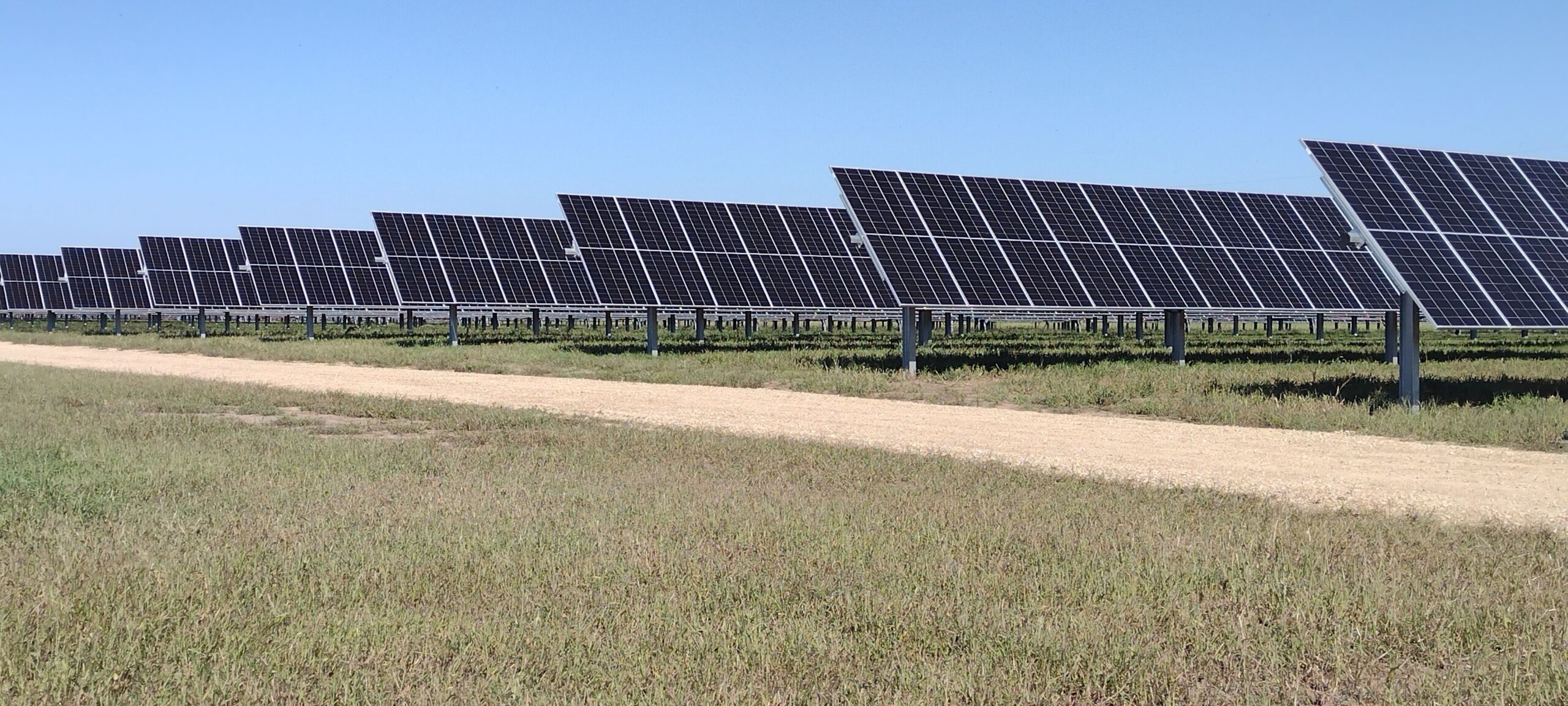
At the ribbon-cutting, Alliant officials drew attention to the safety record achieved during construction. According to Cameron Garner, construction project manager at Burns & McDonnell, not a single accident resulting in a loss of labor hours was recorded during the project’s construction. This is a remarkable achievement considering that 120,000 hours of labor were logged in completing the solar farm.
Alliant has scheduled its next ribbon-cutting ceremony in late September at its 150 MW Wood County solar farm near Nekoosa. A third ceremony will likely follow in November at the utility’s North Rock project north of Janesville.
Over the last three years, the PSC has approved 1,850 MW of utility-owned solar generating capacity in Wisconsin. Of that total, nearly 60% of that capacity will serve Alliant Energy’s Wisconsin customers. PSC Commissioner Tyler Huebner joined Alliant officials and other project partners in the ribbon-cutting.
|
Approved Alliant Energy solar projects
Docket Nos. 6680-CE-182 and 6680-CE-183
|
| Project name |
Location (county) |
Capacity (in MW) |
Start date |
| Albany |
Green |
50 |
2023 |
| Bear Creek |
Richland |
50 |
8/2022 |
| Beaver Dam |
Dodge |
50 |
2023 |
| Cassville |
Grant |
50 |
2023 |
| Crawfish River |
Jefferson |
75 |
12/2022 |
| Grant County |
Grant |
200 |
2024 |
| North Rock |
Rock |
50 |
11/2022 |
| Onion River |
Sheboygan |
150 |
2023 |
| Paddock |
Rock |
65 |
2023 |
| Springfield |
Dodge |
100 |
2023 |
| Wautoma |
Waushara |
99 |
2023 |
| Wood County |
Wood |
150 |
9/2022 |
| Total |
1,089 |
|
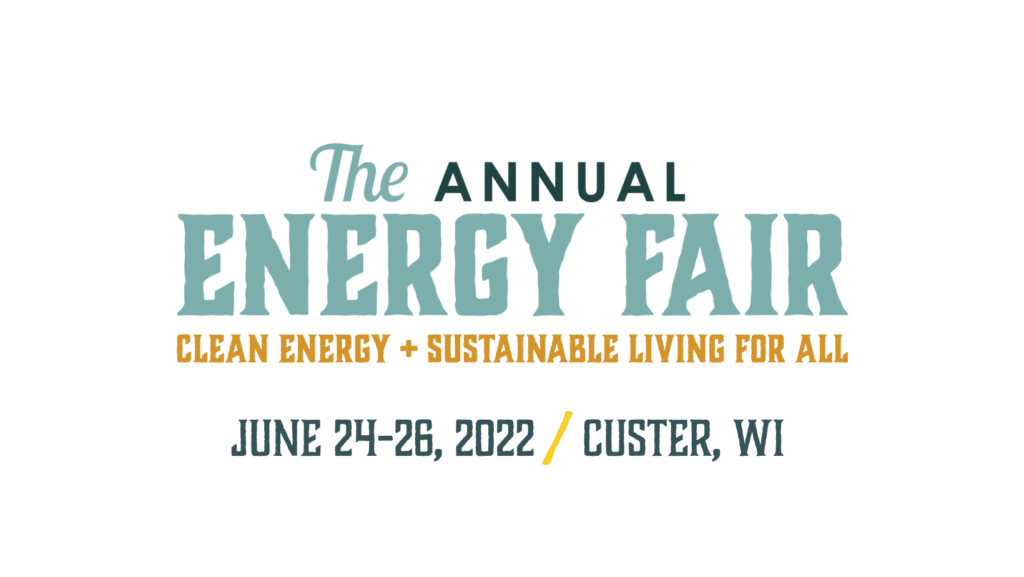
by Jodi Jean Amble | Jul 1, 2022 | Electric Vehicles, Events, Local Government, Programs, RENEW Wisconsin, Renewables, Solar, Solar for Good
Last weekend, the Midwest Renewable Energy Association (MREA) hosted the 31st Annual Energy Fair, bringing people together to learn about sustainability and clean energy, connect with others, and take action toward a sustainable future. The Fair featured workshops, exhibitors, live music, inspiring keynote speakers, family fun, great local food, and more.
RENEW staff presented some compelling workshops and you can download slides from their presentations below.
A Zero-Carbon Grid – How We Get There
Andrew Kell, RENEW Policy Analyst, discussed zero-carbon goals and ongoing planning efforts in Wisconsin. Andrew also discussed a joint study to address policy considerations of this clean energy transition.
Health Benefits of Electric Vehicle Adoption
Christina Zordani, Electric Vehicle Policy Intern at RENEW, discussed a Wisconsin with 100% clean-power electric vehicle adoption. In this workshop, attendees learned how a renewable-powered transportation network would bring significant economic and health benefits to Wisconsin.
Vehicle-to-Grid: Opportunities and Challenges
Francisco Sayu, RENEW Emerging Technology Director, discussed how Vehicle-to-Grid technology unlocks the energy stored in electric vehicles and opens opportunities for energy trading, energy management, and grid resiliency. The workshop delved into two case studies.
Energy Policy and Politics in Wisconsin
Jim Boullion, RENEW Government Affairs Director, reviewed the busiest legislative session for energy-related issues in many years, including solar financing, community solar, and electric vehicle rules.
Small Solar Farms in Wisconsin – Why More Are Needed
Michael Vickerman, RENEW Policy Director, discussed initiatives to expand Wisconsin’s solar marketplace’s middle tier: offsite arrays serving groups of self-selecting customers or whole communities across Wisconsin.
A Clean Energy Toolkit for Local Governments
Sam Dunaiski, RENEW Resources Director, discussed towns, cities, and counties in WI that are building the clean energy economy. By investing in renewables, WI communities are reducing carbon emissions, investing locally, and creating energy independence.

by Jodi Jean Amble | May 25, 2022 | Community Solar, Events, Geothermal, Local Initiatives, RENEW Wisconsin, Solar
On Sunday, May 22, RENEW Wisconsin, with presenting sponsor, Xcel Energy, hosted the 9th Annual “Ride with RENEW” bike ride fundraiser in Eau Claire, WI. Starting at Carson Park, the 16-mile route featured the Chippewa River State Trail and Lakeshore Trail. Over 20 riders enjoyed a chilly spring day pedaling and learning about the innovative renewable energy installations powering Eau Claire, Wisconsin.
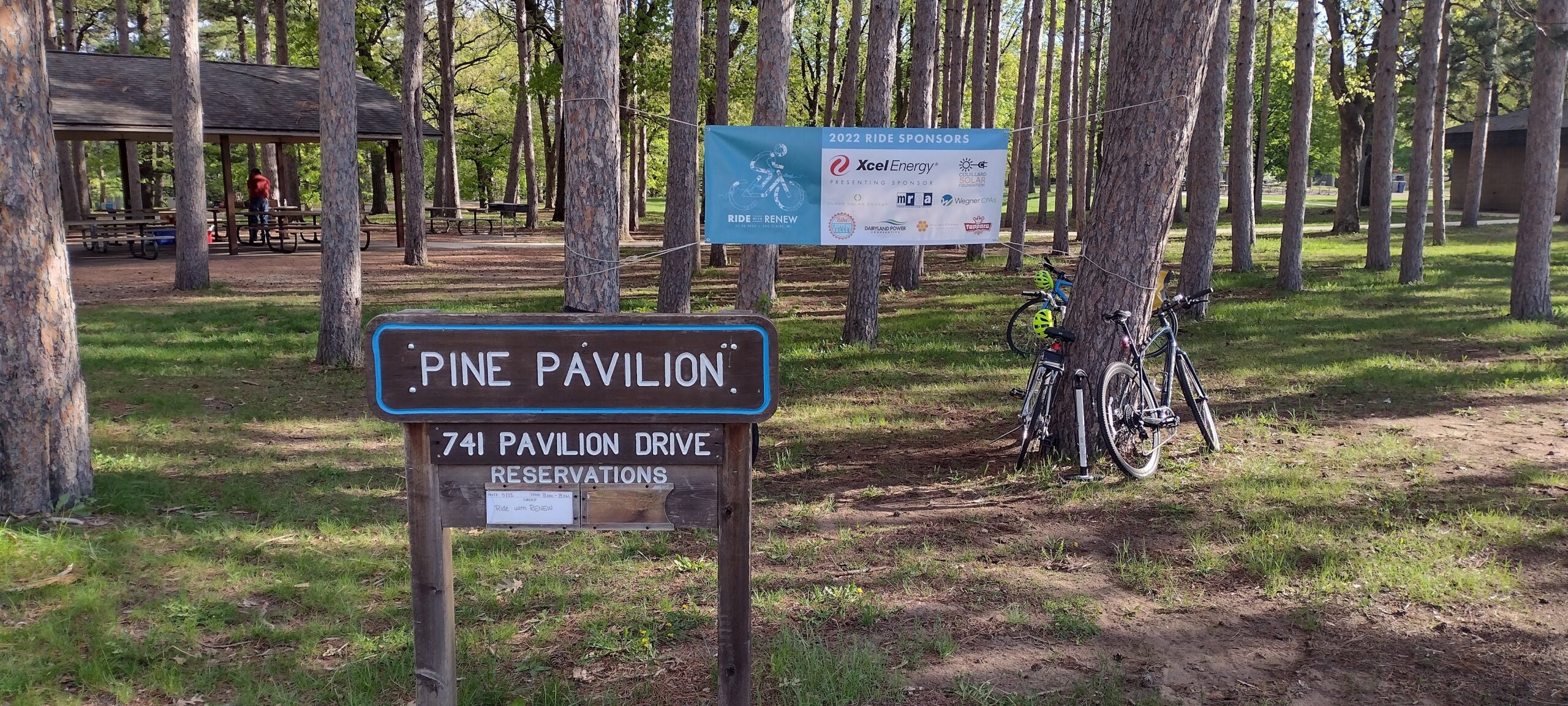
The first stop of the 2022 tour was Solar Forma. Brian Graff showed riders the company’s unique solar designs, including E-cacia trees, their signature product. Solar Forma wants to expand its solar designs to include a solar “wave” carport with electric vehicle charging.
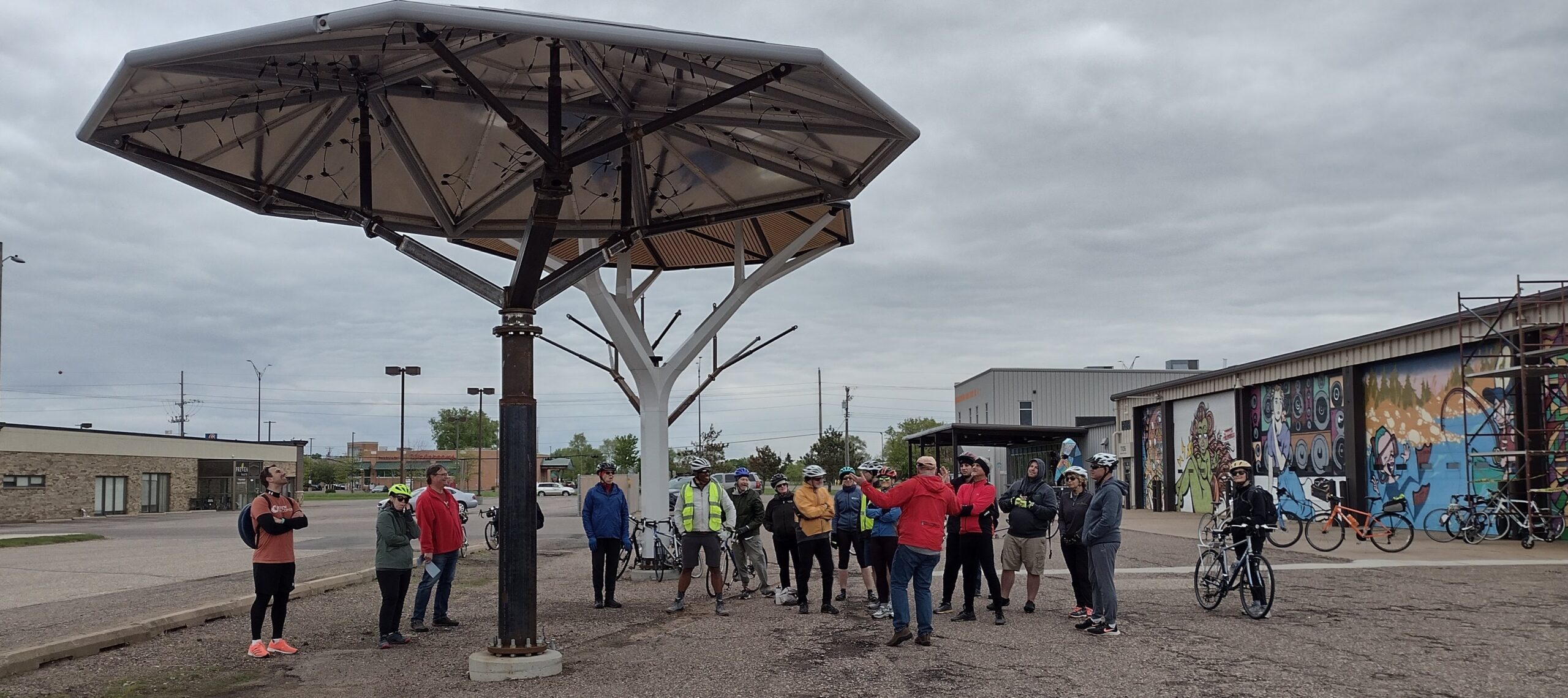
Next, riders visited Xcel Energy’s Sky Park Solar Garden. Julie Thoney and Zeus Stark provided an up-close look at the 1MW community solar garden at Sky Park, and riders also learned about Xcel’s three other Wisconsin community solar gardens. Xcel was the first investor-owned utility in the country to propose a net-zero carbon goal. They’re looking to expand their renewable portfolio in all operating states, including Wisconsin.
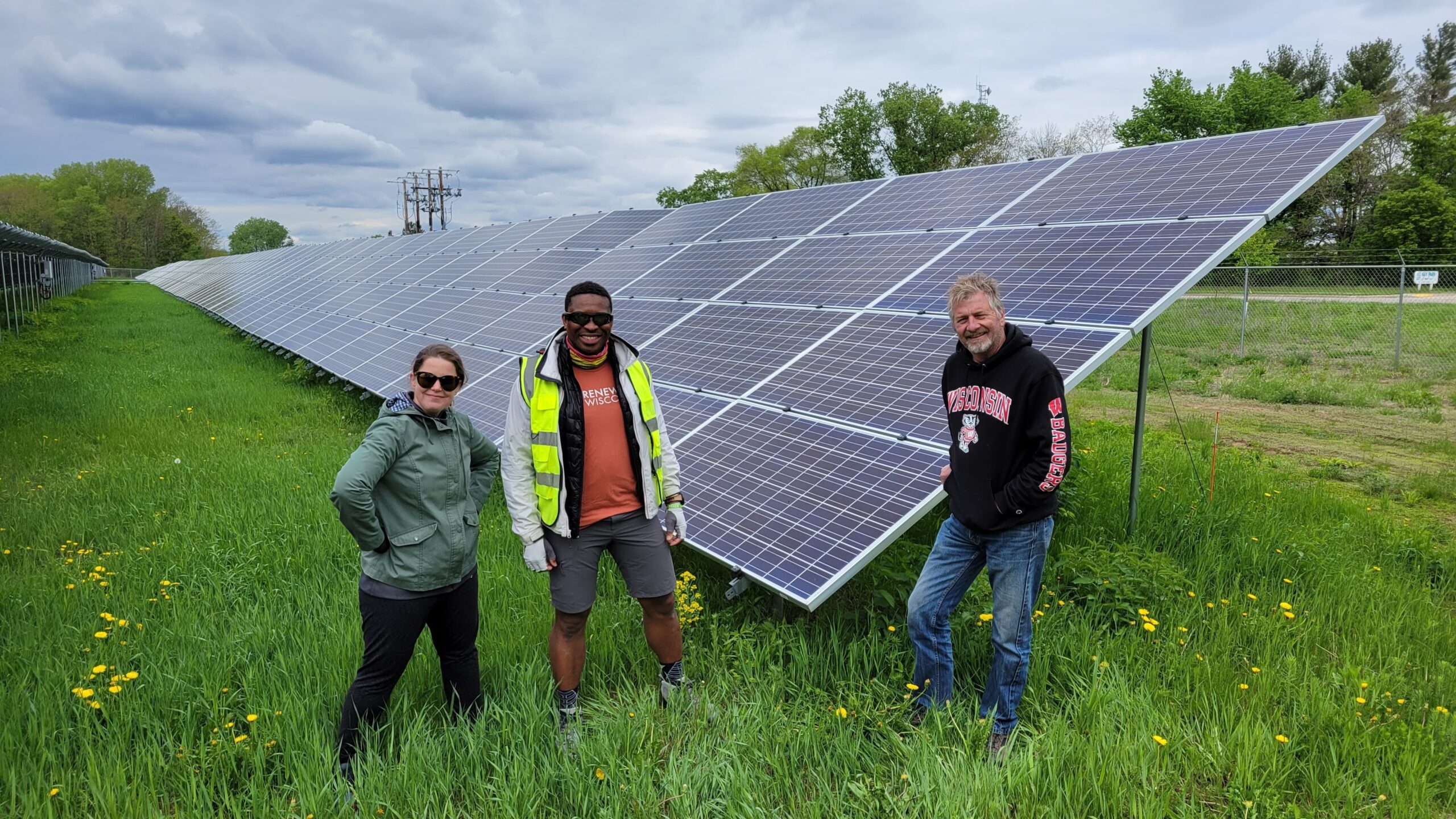
The next stop on the ride was Chippewa Valley Technical College (CVTC) Energy Education Center. Adam Wehling and Zeus Stark showed riders a variety of renewable energy generation sources on display, including several solar layouts and multiple small wind turbines, which is the same equipment CVTC uses in their class lessons. Riders also heard from Claire Lindstrom from the Couillard Solar Foundation about their work to make solar more accessible to public schools and mission-based organizations throughout the state. The Couillard Solar Foundation supplied 80 kilowatts of solar panels to CVTC, which provides approximately 40% of the electricity consumed at the Energy Education Center.
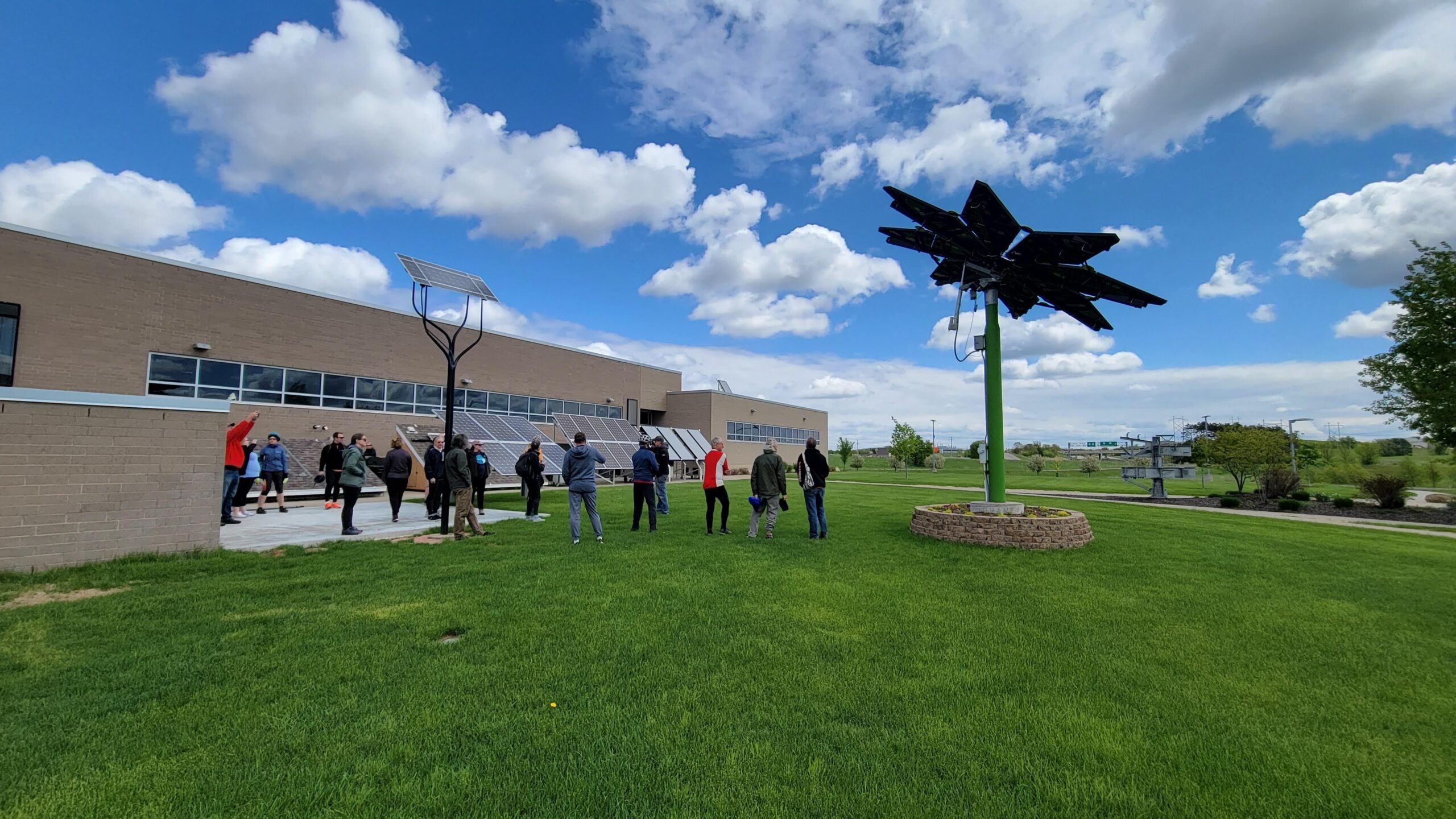
The final stop of the 2022 Ride was the home of long-time friend and former board member of RENEW, Ellen Terwilliger. Over the last decade, Ellen and her husband Steve installed four geothermal wells for heating and 15 kilowatts of solar PV, offsetting around 80% of their energy needs. The property also contains electric-vehicle charging, native prairie grasses, and several rain barrels. The Terwilligers even removed and reinstalled a south-facing rooftop to optimize their solar panels!
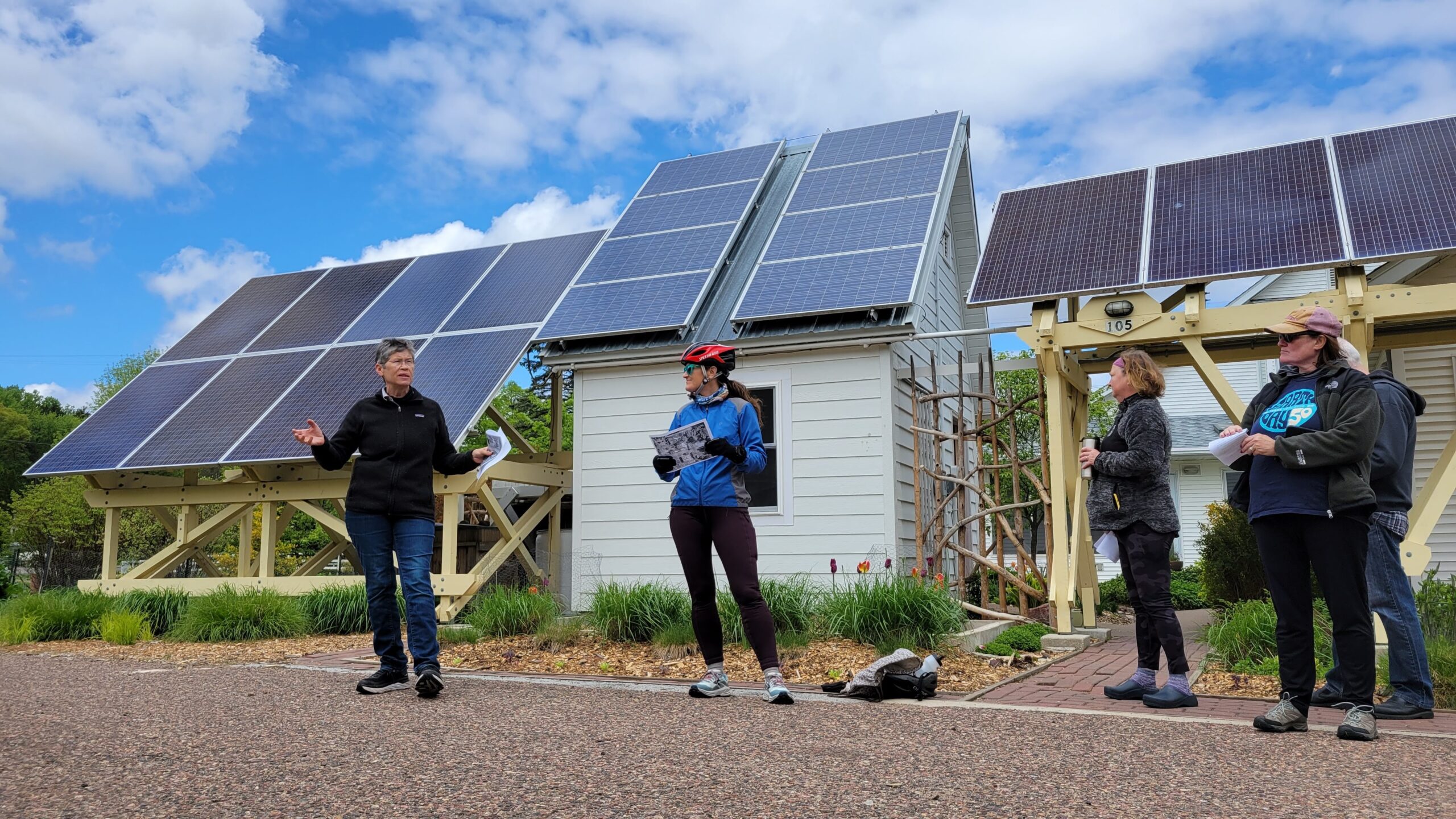
Our 2022 Ride with RENEW ended back at Carson Park with Toppers pizza and a brief address from Jim McDougall discussing his work to install solar on Eau Claire schools. Thanks to Eau Claire, local Ride leader Jeremy Gragert, and all of our riders, donors, and sponsors. Stay tuned for information on our 2023 Ride!
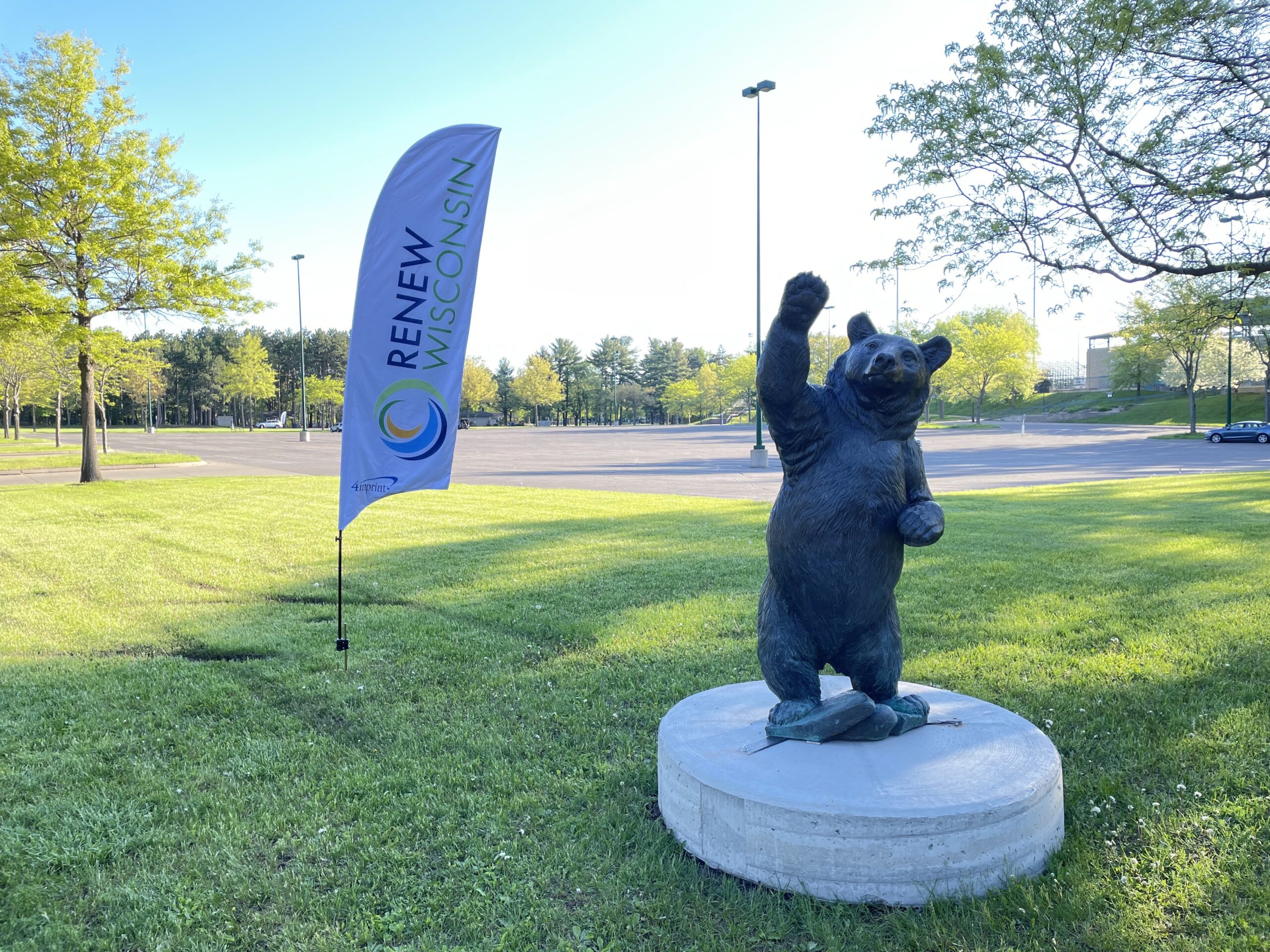
2022 RIDE WITH RENEW SPONSORS
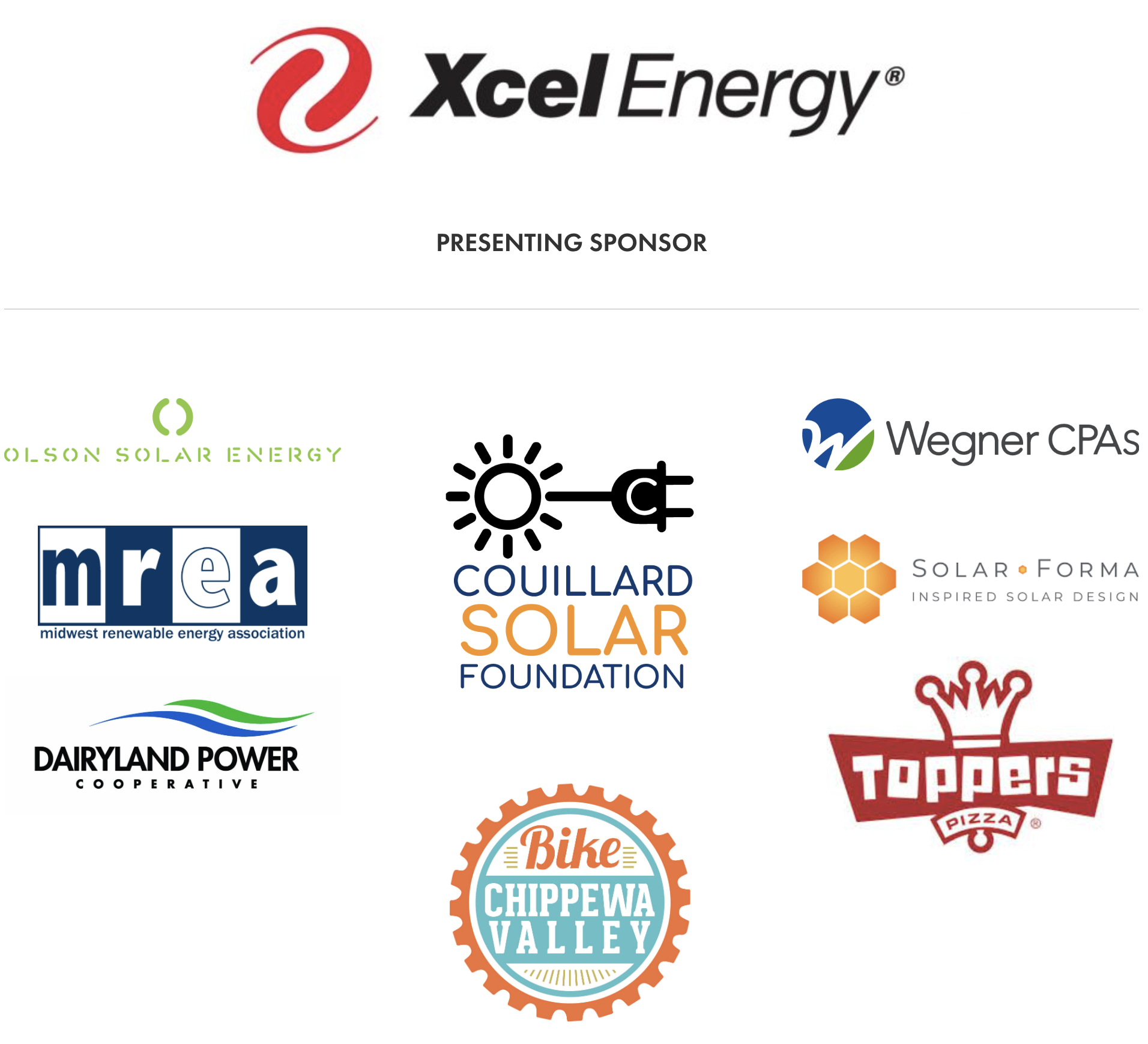
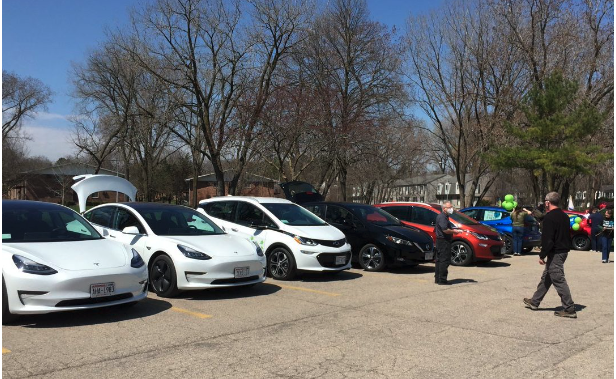
by Francisco Sayu | Apr 11, 2022 | Community, Electric Vehicles, Events, Local Initiatives
On Friday, April 22, 2022, Drive Electric Wisconsin, RENEW Wisconsin, Slipstream, Wisconsin Clean Cities and the Dane County Office of Energy and Climate Change will be hosting an Earth Day Electric Vehicle (EV) Parade in Madison.
A variety of electric vehicles will converge at Demetral Park at 1:00 pm. The parade will depart the park at 2 pm, drive through downtown, make two loops around Capitol Square, and return to Demetral Park. Spectators are encouraged to attend at Demetral Park, Capitol Square, or along the parade route.
All battery electric vehicles (BEVs), plug-in hybrid electric vehicles (PHEVs), electric trucks, and electric motorcycles are welcome to join the parade. For more information and registering for the event, please visit Earth Day EV Parade.
In the Wisconsin transportation sector, GHG emissions are the second-largest source of emissions; EVs currently present the most substantial potential to significantly reduce GHG emissions in the transportation sector, primarily when electricity is generated with low-carbon resources. EVs provide many benefits, including lower maintenance costs, lower fuel costs, zero local emissions, quieter operation, and faster acceleration. As Wisconsin continues to transition to clean energy, the environmental benefits of “driving electric” will continue to increase.
Local residents Carol and Andy Phelps organized Madison’s first Earth Day EV Parade in 2020 as a way to celebrate EVs and Earth Day amid the pandemic. In 2021, more than sixty vehicles joined, RENEW Wisconsin, Slipstream and Dane County Office of Energy and Climate Change for the second Earth Day EV Parade. Many EVs and electric motorcycles are expected at this year’s parade, including Ford, Volkswagen, GM, Tesla, Nissan, Hyundai, Kia, Toyota, Audi, Porsche, BMW, Mercedes-Benz, and Harley Davidson.



